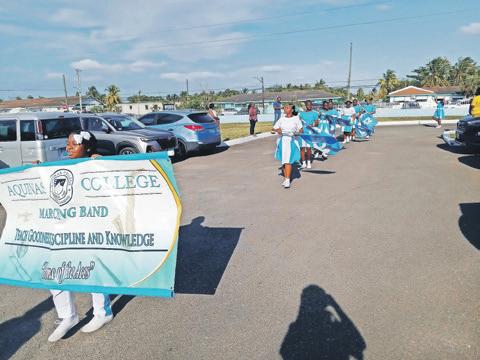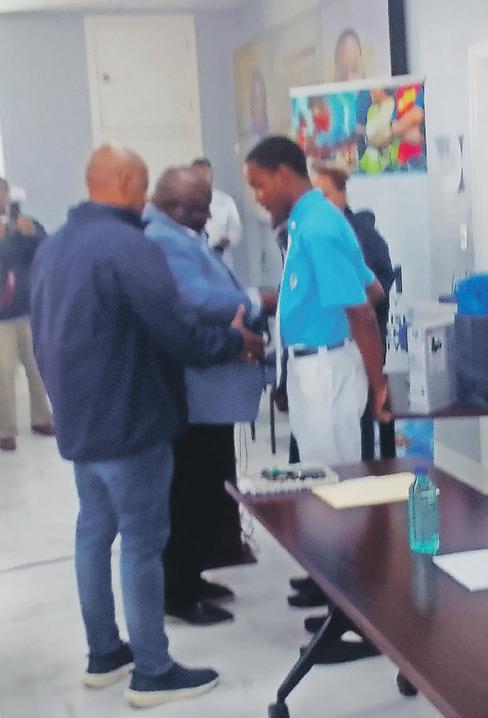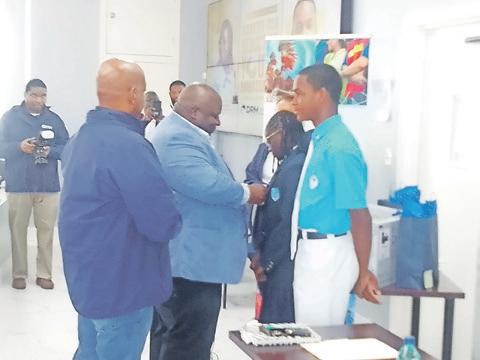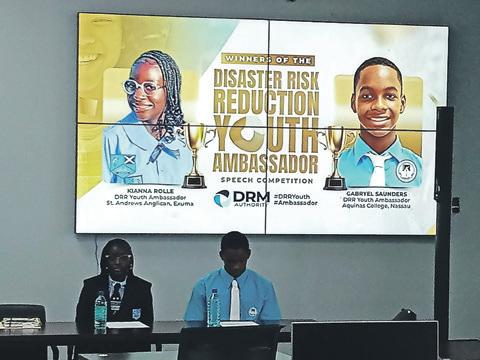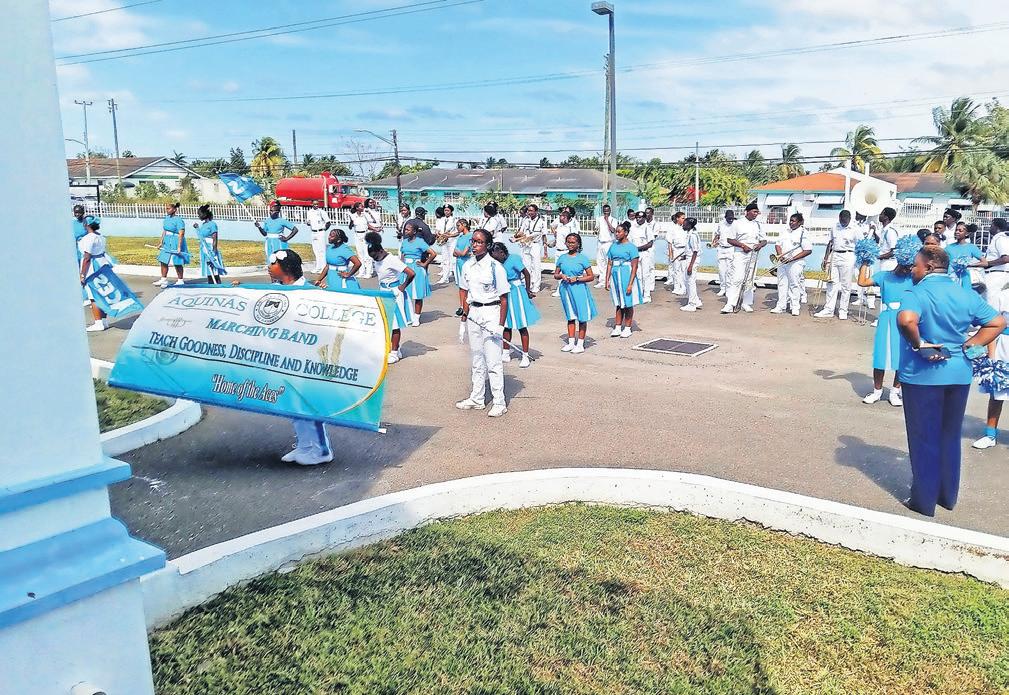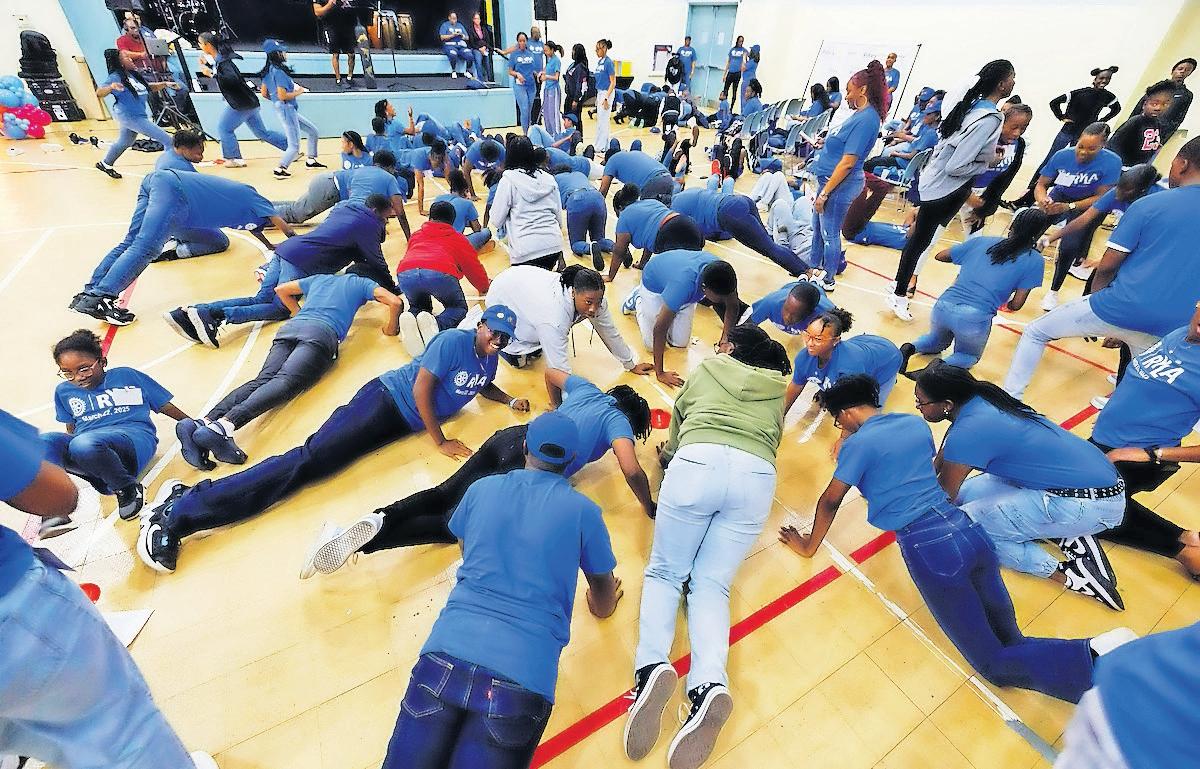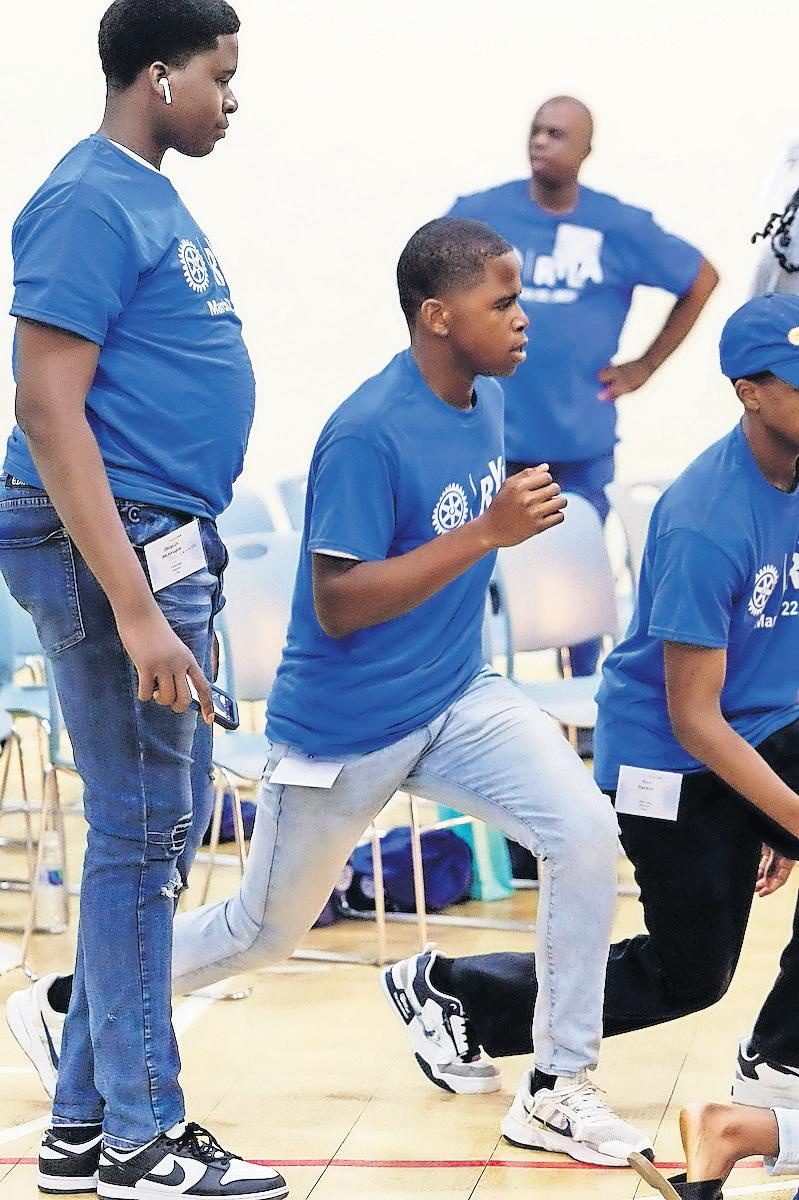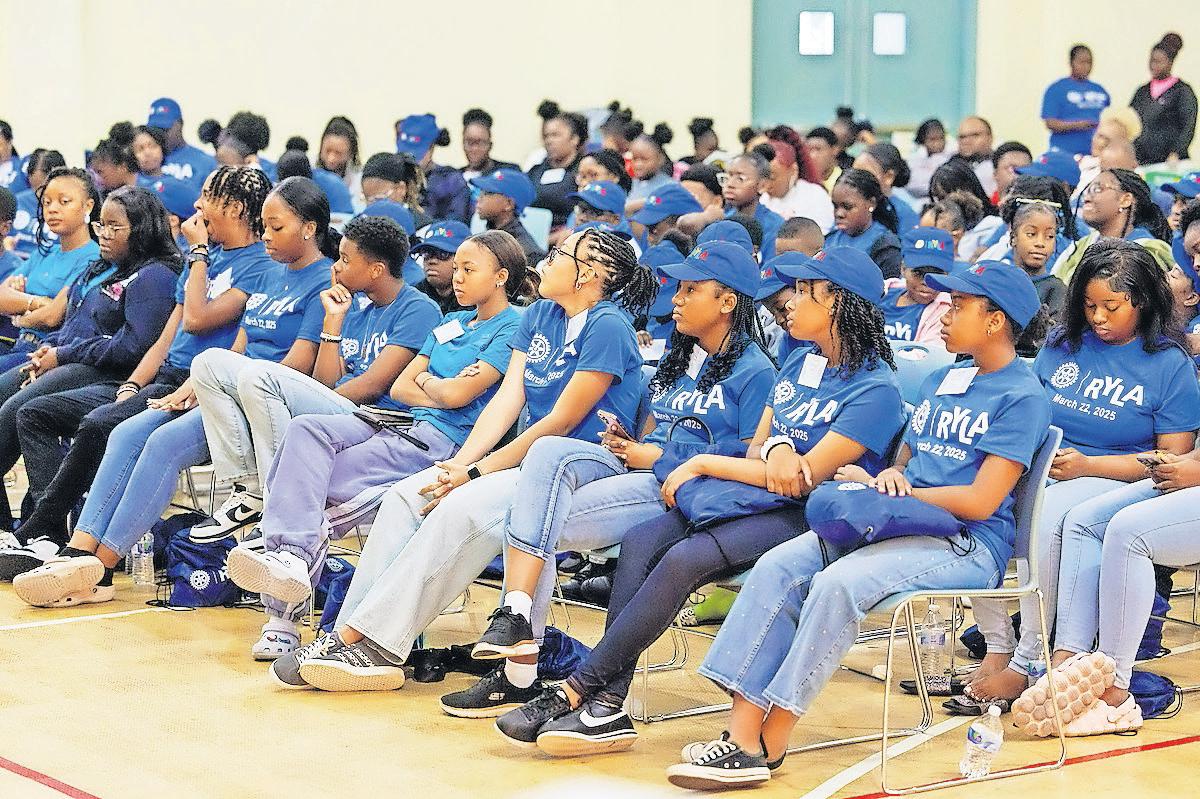












Sir Franklyn slams FNM leader for ‘immaturity’, and ‘petty foolishness’
By NEIL HARTNELL Tribune Business Editor
nhartnell@tribunemedia.net
FOCOL Holdings chairman has accused the Opposition’s leader of “political gimmickry” and “petty foolishness” over his demands for greater disclosure and transparency on the Government’s energy reforms.
Sir Franklyn Wilson
told Tribune Business that Michael Pintard had said “nothing of substance” in his call for the Davis administration to provide more and better details, including pricing and terms, for its liquefied natural gas (LNG) supply and regasification deal with BISX-listed FOCOL and Shell.
‘My ten years trapped in bed after car accident’
By LYNAIRE MUNNINGS Tribune Staff Reporter
lmunnings@tribunemedia.net
GABRIELLE “Gabby”
Lord was 25 when a car ride with her grandfather changed her life forever.
Just after 7pm on January 3, 2016, the vehicle she was in flipped on Shirley Street, just outside Doctors Hospital. Seated in the back, she was thrown from the car. Her spinal cord was fractured. Her neck was broken. She wasn’t breathing when first responders found her.

Now 34, Ms Lord is paralysed from the neck down. Her days are shaped by immobility, sleepless nights, and long stretches of



By KEILE CAMPBELL Tribune Staff Reporter kcampbell@tribunemedia.net
EMERGENCY management officials say national hurricane shelter inspections will begin on April 1 as part of ongoing readiness efforts, with a renewed focus on categorising shelters by storm type and expanding overall capacity. A part of the government’s shelter expansion involves the long-delayed Marsh Harbour facility in Abaco, which remains unfinished more than four years after Hurricane Dorian. The shelter — still under construction as of January — is now in its final stages. “The shelter in Marsh Harbour, Abaco,
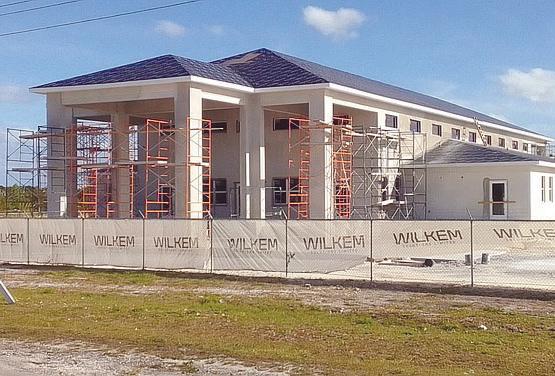
Half
The woman, a BritishCzechoslovakian national, reportedly lost control of the watercraft while riding near the private island shortly after 1pm. She suffered serious injuries in the collision. Medical personnel responded quickly, but she was pronounced dead



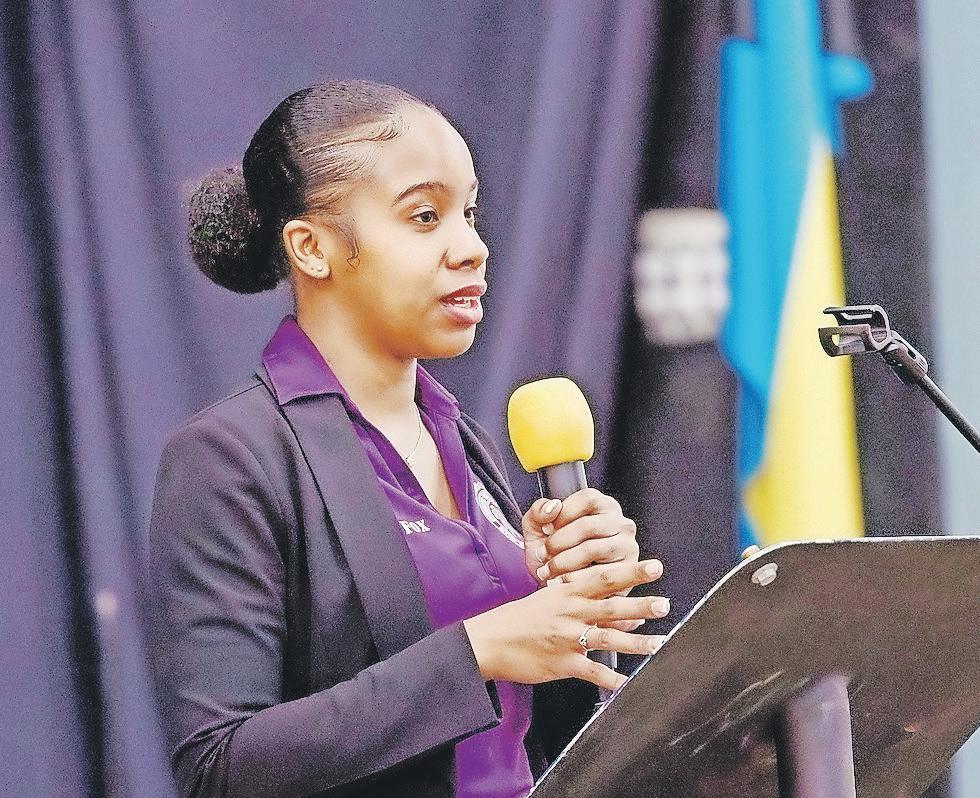


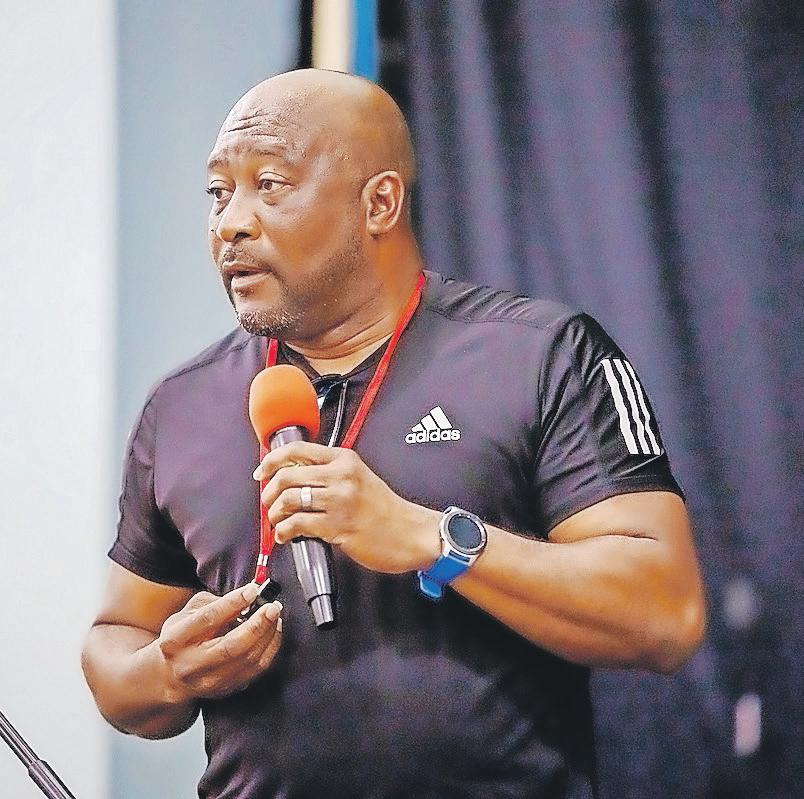





we toured the facility, and we are pleased,” said Aaron Sargent, managing director of the Disaster Risk Management Authority. “We are trying to wrap up as soon as possible with the United Nations Development Programme.”
The centre is being developed in partnership with the UN and is designed to withstand winds of up to 250 miles per hour. Features will include an industrial kitchen, emergency communications, accessible restrooms and showers, and office space for emergency personnel. The facility, funded through the India-UN Development Partnership Fund, is expected to be completed by December 2024. Its construction has faced repeated setbacks since ground was broken in December 2020, including structural issues, budget overruns, and public criticism from Abaco residents frustrated with the delays.
In September, the roof trusses collapsed, adding to ongoing concerns. Despite these challenges, officials had said the shelter would be complete by the end of last year.
In the meantime, officials are preparing to
inspect shelters nationwide beginning next month. Mr Sargent said last year’s network of 144 shelters will be supplemented by additional facilities, including privately owned buildings now being offered for inclusion in the national shelter programme.
The goal is to complete inspections by mid-May, “barring any unforeseen circumstances,” so that the public can be officially informed of which shelters will be operational and suitable for various storm conditions.
This year, for the first time, officials will categorise shelters based on the severity of natural hazards they can withstand. Mr Sargent said this new system is meant to bring transparency and help residents make informed choices during emergencies.
“We want to be able to share with you, if there’s a Category Five storm, which type of shelter you need to go to so that you know which route I need to take to get to this type of shelter, how I need to prepare my family, how much people that can accommodate,” he said.
Officials are also exploring registration systems to avoid overcrowding and improve organisation during evacuations.
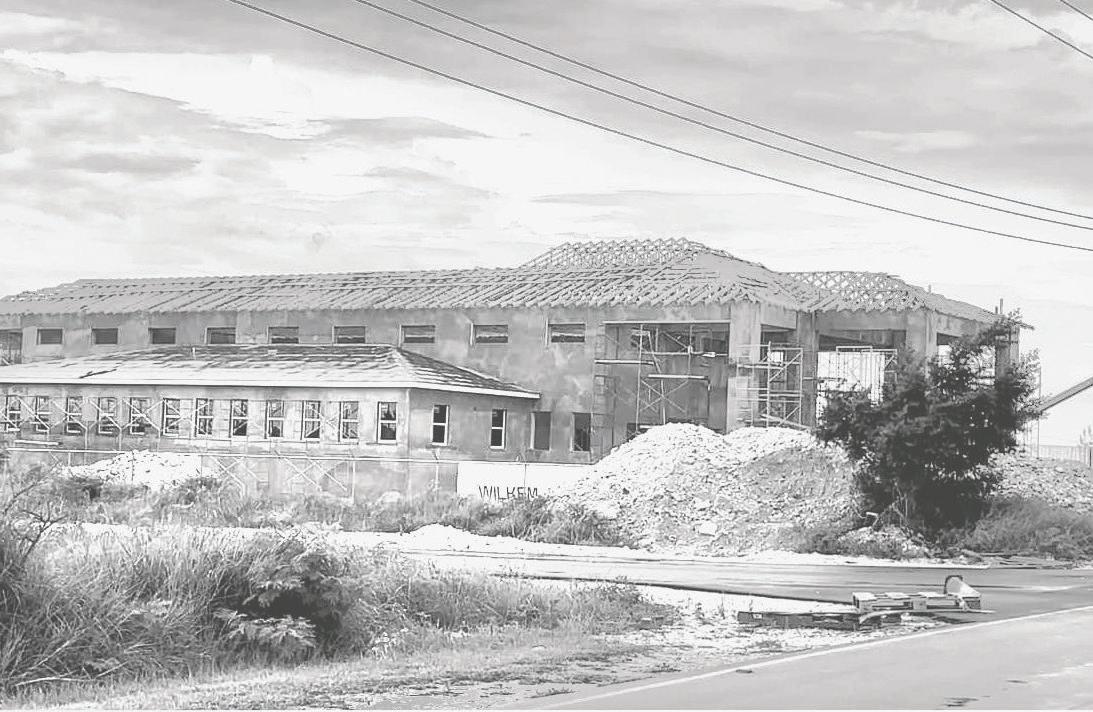
Minister of State for Disaster Risk Management Leon Lundy said public education is central to the government’s shelter strategy this year. He said mass evacuation preparedness exercises are underway, with residents being taught about flood zones, evacuation routes, and the items needed in their emergency kits.
Mr Lundy said the government is working to upgrade all shelters to meet international and humanitarian standards and clearly communicate which shelters are best suited for different hazards, such as flooding, high winds, or varying storm categories.
Although current shelter capacity is limited — with less than ten percent of the population able to be housed under the existing system — Mr Sargent said the government plans to construct eight to ten new multipurpose centres nationwide. These facilities will serve as shelters during emergencies and as community or sporting spaces at other times.
“We’ve been preparing from last season, and definitely when the season ended is when our work really began,” Mr Lundy said. “During the clear skies is when we want to prepare for the grey skies.”
By KEILE CAMPBELL Tribune Staff Reporter kcampbell@tribunemedia.net
WITH sweeping staff cuts threatening the reliability of the United States’ key weather agency, a top Bahamian disaster official is urging greater regional cooperation to avoid overdependence on foreign forecasting support.
Aaron Sargent, Managing Director of the Disaster Risk Management Authority, said Caribbean countries must urgently strengthen ties and share resources as the US National Oceanic and Atmospheric Administration (NOAA) faces budget reductions that could undermine regional resilience.
“NOAA, FEMA or UK
USAID provide significant support to the region,” Mr Sargent said on Friday. “And as such, we now have to find creative ways to try and mitigate any potential exposure that the closures or cuts to these entities may bring.”
His comments follow recent reports that NOAA has already cut over 880 employees — more than seven percent of its workforce — and plans to shed more than 1,000 additional workers this year, reducing its total staff by about 20 percent. The layoffs have disrupted critical weather services, including balloon launches and environmental modelling, according to CNN and Reuters.
Mr Sargent said regional disaster coordinators are actively discussing how to
respond. He said an afteraction review meeting in Barbados on Hurricane Ferrel focused heavily on how Caribbean nations can better support each other in the face of weakening international aid.
“The beauty of the Caribbean is we all experience the same thing,” he said. “You would find a number of national disaster coordinators face the same problems. And so we’re trying to work together more efficiently to resolve some of the challenges in the region.”
He said Bahamian officials are considering re-engagement with the Caribbean Institute of Meteorology and Hydrology to strengthen regional forecasting capabilities. The institute provides
plea foR $70,000 inteRim payment ahead of t Rial
By RASHAD ROLLE
A SUPREME Court
judge has rejected a former grocery store worker’s request for an interim payment of up to $70,000 ahead of his upcoming trial against AML Foods Limited, ruling that substantial factual disputes make the case unsuitable for pretrial relief.
Justice Camille Darville-Gomez delivered the ruling on March 20, just under two weeks before the trial is set to begin.
Brindel Pratt, a former employee of AML Foods, alleges that he suffered serious back injuries in 2019 after stepping into a hole while unloading a container at the rear dock of the company’s Super Centre location.
Mr Pratt sought an interim payment under Part 17.15(1)(d) of the Civil Procedure Rules, which allows such payments only if a judge is satisfied that a claimant would obtain a judgment against the defendant for a substantial amount of money at trial. His legal team argued that the company failed to maintain a safe workspace and that the loading dock was in
disrepair — claims they said were corroborated by photographs and witness testimony. In support of his application, Mr Pratt cited a report from a treating physician, Dr Charles Rahming, and asked the court to take judicial notice of AML’s financial capacity based on its publicly reported revenue and profits.
However, AML Foods denied liability and presented a conflicting version of events. The company claimed that Mr Pratt fell not on the loading dock, but while crossing a portable metal ramp leading into a refrigerated container. Their defence also challenged the admissibility of the photographs offered by Mr Pratt and questioned the credibility of his injuries, noting that he allegedly continued to work after the fall and showed no immediate signs of pain or distress. The judge concluded that the case was “rife with substantial dispute” about the facts and the location of the accident — matters that could only be resolved by cross-examination at trial. She emphasised that interim payment procedures are inappropriate where the underlying facts are sharply contested,
citing legal precedent from both Bahamian and English courts.
“I am not satisfied that the claimant would actually succeed in his claim and, as a result, would obtain a substantial amount of money,” Justice Darville-Gomez wrote.
She referred to Schott Kem Ltd v Bentley and Joseph Pinder v Trishnell Wetherill, both of which underscore the importance of avoiding so-called “mini-trials” at the interim stage. The judge also pointed to the proximity of the full trial, which is set to begin on March 31 and continue on April 1, as further reason to deny the application. In his application, Mr Pratt had also argued that the company’s financial capacity to pay was clear, citing AML’s reported $191 million in revenue and $4.9 million in profits. While the judge acknowledged that AML’s resources were not in dispute, she said this alone did not satisfy the legal threshold for granting an interim payment.
The court awarded costs to AML Foods, ordering the company to submit a schedule of its legal fees within 30 days unless the parties reach an agreement beforehand.
satellite imagery, temperature trend analysis, and flood risk tools –– services that could become increasingly important if NOAA’s capacity continues to decline.
Amid the layoffs, reports have surfaced that the Trump-aligned “Project 2025” transition plan could push for NOAA’s partial privatisation, slashing climate research and outsourcing public weather services. Outlets, including Forbes and PBS NewsHour, have raised concerns that if NOAA’s forecasts become subscription-based, the public may
lose access to life-saving alerts such as hurricane or tornado warnings.
The Union of Concerned Scientists has also warned that breaking up NOAA would undermine the accuracy and accessibility of critical weather data, particularly in vulnerable, lower-income regions like the Caribbean that depend heavily on US-supported early warning systems.
CBS News further reported that emergency responders could struggle to access timely and precise forecasts as NOAA’s workforce continues to
shrink.
Mr Sargent acknowledged these risks and said stronger regional frameworks — including more investment in youth training and cross-border programmes — will be key to closing the gap.
He pointed to the Disaster Risk Reduction Youth Ambassador Programme as an example of how targeted international funding can help offset domestic limitations. The programme, he said, was created after donors asked what gaps had emerged due to resource constraints.

isolation. She hasn’t left home in over a year, except for one annual outing her father arranges each September to mark her birthday.
“Just being in bed all the time and being dependent on people, it’s been hard, extremely hard,” she said. “Some days, I just break down.”
Her sister, also in the car that night, suffered a fractured pelvis. Her grandfather sustained a head injury. Ms Lord’s injuries were the most severe.
Nearly a decade later, road safety remains a national concern. Traffic
fatalities rose from 51 in 2023 to 66 in 2024, and 15 people have already died in crashes this year, according to officials. Authorities say the upward trend highlights the urgent need for more responsible driving, especially near schools and other high-foot-traffic areas.
“I didn’t wake up at the scene,” Ms Lord said. “I was told that when they found me, I was lying outside the vehicle, motionless.”
Since then, she has required full-time care. She said her father takes on most of the burden — managing her physical needs and the financial strain.

from page one
at the scene by a local doctor. Police said she was a passenger on a cruise ship that had docked at the island. Officers from Eleuthera travelled to the site to begin investigations. Authorities are urging visitors to exercise caution when using watercraft and are working with cruise line officials to strengthen safety protocols.
She described the emotional toll of life after the accident: persistent anxiety, depression, and an inability to sleep through the night.
“Mentally, emotionally, sometimes my focus is off,” she said. “I just cry all the time, but it’s like I would cry to myself.”
She said her grandfather was remorseful and would try to help her. She still dreams of reclaiming basic independence — not full mobility, but the ability to feed herself, sit up, and relieve her father of some of the daily burden.
“Even if I would still need someone, at least I would be able to do the
majority of things,” she said. “I’ll be less dependent and more independent.”
Each year, she hopes the next will bring change. “Every year what came around, I would always be hopeful that, you know, this year is my year... and then the year would just go by.” Faith, she said, is what carries her through. “I pray every day, every night. I read my Bible. I know that God brought me from so far,” she said.
She and her family are raising funds to pursue medical treatment in Cuba, where doctors believe therapy may help her regain some mobility. She can be reached at 809-3048.
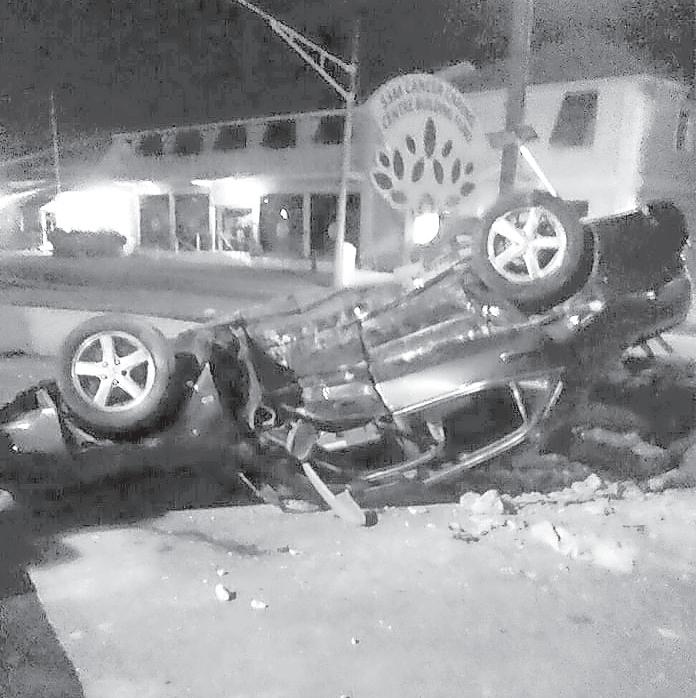

TWO more people — a 79-year-old man and a 23-year-old woman — were hospitalised over the weekend after allegedly attempting to take their own lives, as national concern over suicides and mental health persists.
The incidents bring the number of attempted
suicides so far this year to seven. Six people have already died by suicide, surpassing 2023’s total and nearly eclipsing last year’s tally.
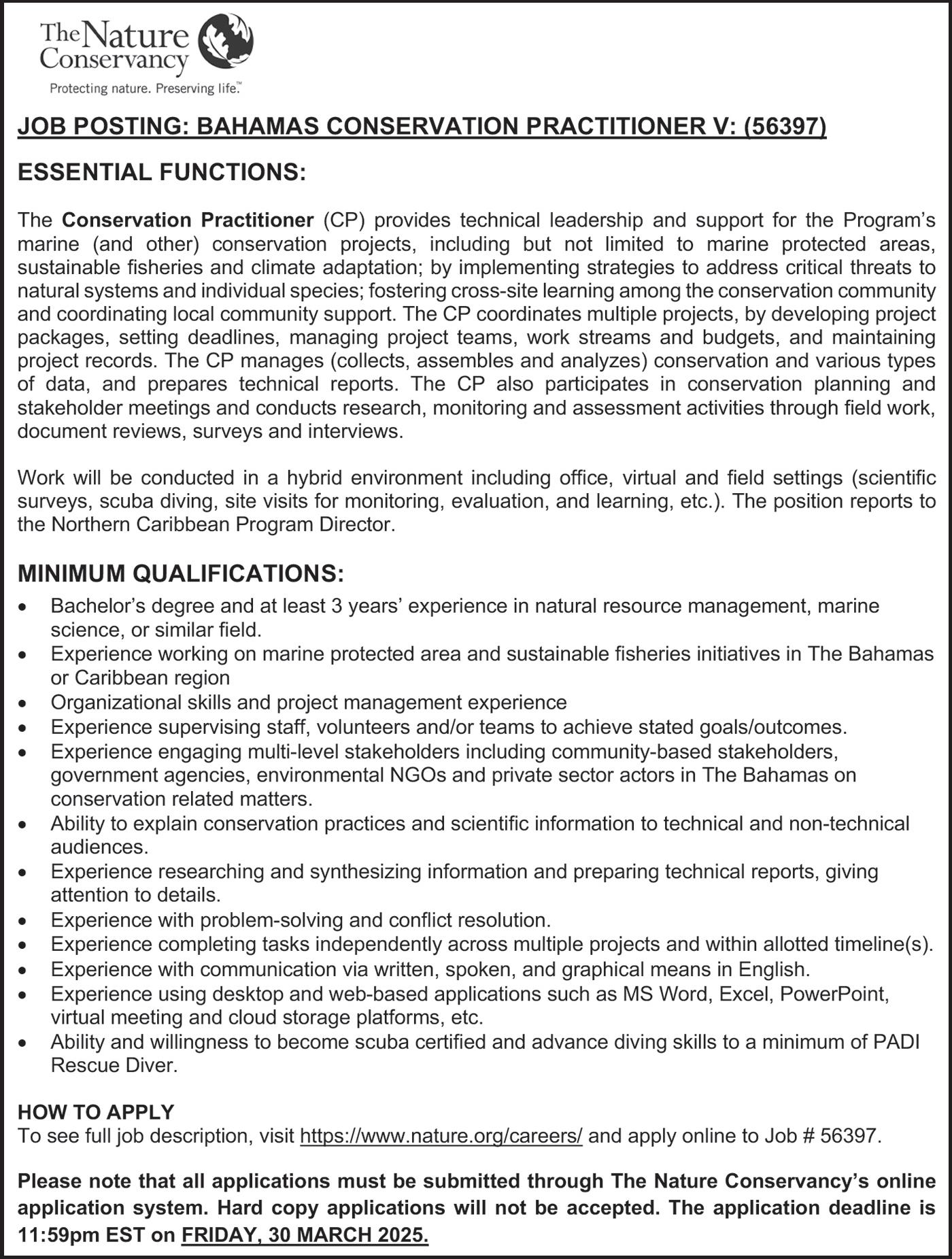
The man was treated at the Marsh Harbour Health Centre before being airlifted to New Providence.
Police said his condition was last listed as stable.
The most recent case occurred in Abaco on Sunday morning, when police received a report that an elderly man had injured himself with a sharp object at a home on Church Street, Pelican Shores. The call came in shortly after 7am from a family member.
In the second case, police were called to a home on Sea Breeze Lane, New Providence, around 10pm Thursday after a 23-year-old woman reportedly ingested a large quantity of overthe-counter medication.
Emergency medical personnel transported her to the hospital, where she remains in stable condition. An investigation is ongoing.
The latest incidents come amid growing alarm over mental health challenges in the country.
Health experts have pointed to economic strain, crime, and the long tail of the COVID-19 pandemic as contributing factors. At the same time, widespread stigma continues to prevent many people from seeking support.
Research has shown that
while women and men experience depression at similar rates, men are far more likely to die by suicide — often because of the more lethal methods they use. Rising substance abuse and impulsivity, tied to stress and emotional isolation, have also been linked to suicidal behaviour.
Psychologist Dr Wendy Fernander, president of the Bahamas Psychological Association, said last week that those who survive a loved one’s suicide often suffer “prolonged grief”, sometimes turning to alcohol to manage guilt and unanswered questions.
“Children who lose a parent to suicide also face a heightened risk of developing suicidal thoughts,” she warned — though she noted this doesn’t mean they will act on them.
Renowned psychiatrist Dr David Allen has said that inconsistent access to counselling makes it harder for survivors to process grief. He urged families touched by suicide to prioritise therapy, warning that unresolved pain can cause people to remain “stuck in sadness, anger, or discouragement”.
A MAN was shot and killed inside a business in Englerston early Friday, becoming the country’s 18th murder victim of the year. According to reports, the gunman entered a Charles Vincent Street establishment shortly after midnight and opened fire before fleeing in a dark-coloured Japanese-model vehicle.
The victim was taken to hospital by private vehicle, where he was later pronounced dead. That night, police responded to a separate shooting in Montell Heights that left a 29-year-old man hospitalised. He was reportedly shot in the upper body by a man wearing an orange
shirt while at the rear of a residence on Mantol Street. The suspect fled, and the victim was taken to hospital by ambulance. His condition was last listed as fair.
In an unrelated incident, police recovered a high-powered weapon and ammunition from Lipton Court off Abraham Street around 10pm Friday. Officers from Operation Black Scorpion, acting on intelligence, made the discovery.
No arrests were made. Operation Black Scorpion is a joint initiative between the Royal Bahamas Police Force and Royal Bahamas Defence Force targeting violent crime.
To advertise in The Tribune, contact 502-2394
By LEANDRA ROLLE Tribune Chief Reporter lrolle@tribunemedia.net
EDUCATION Minister
Glenys Hanna-Martin has urged drivers to be more cautious near school zones after a CH Reeves Junior High student was reportedly struck by a vehicle near the Mall at Marathon on Thursday.
Police did not release many details but said the matter was under investigation. The student’s condition remains unclear.
Mrs Hanna-Martin said she immediately contacted Ministry of Transport officials after learning of the incident.
She said the case highlights the urgent need to review the area near the mall, where students regularly cross the road after school.
“In that particular area, you have two major high schools, highly populated, many on foot, hundreds, but it’s also mixed in with a commercial area,” she said on Friday. “It’s a major thoroughfare, and so it requires, first of all, drivers in that
area, to have a heightened sense of precaution.”
“I know we’d be all trying to get from point A to point B, but we don’t want to take down children along the way.”
She said her ministry and other government agencies have been working to improve pedestrian safety in busy school zones, including introducing new signage.
Plans are also underway to introduce crossing guards, she added.
“It’s a work in progress,” Mrs Hanna-Martin said. “But a lot of people seem anxious on the roads and I see a lot of impatience and aggression but we have to manage ourselves.”
The incident comes weeks after Transport Minister JoBeth Coleby-Davis called on drivers to slow down, noting that many motorists speed during school hours.
“Just this week, a driver contacted my ministry to report that a young student on her way to Yellow Elder Primary School was almost hit by a speeding car while on the pedestrian crossing.
As drivers, we must do better. Please slow down. I repeat, as drivers, please slow down,” she recently told Parliament.
The Davis administration pushes several road safety initiatives.
Earlier this month, the Ministry of Education launched a national road safety jingle and mascot campaign in partnership with RM Bailey Senior High School.
Prime Minister Philip Davis also recently announced that a national road safety creative competition for students aged 11 to 16 will launch next month.
He encouraged companies to join a Road Safety Corporate Influencer Network — sponsoring school zones, rewarding safe drivers, and using their platforms to promote road safety.
Officials said there were 11,157 road accidents last year, 2,234 of which resulted in injuries. Road fatalities rose from 51 in 2023 to 66 in 2024. Fifteen people have already died in crashes this year.


NULLIUS ADDICTUS JURARE IN VERBA MAGISTRI
“Being Bound to Swear to The Dogmas of No Master”
LEON E. H. DUPUCH
Publisher/Editor 1903-1914
SIR ETIENNE DUPUCH, Kt., O.B.E., K.M., K.C.S.G., (Hon.) LL.D., D.Litt .
Publisher/Editor 1919-1972
Contributing Editor 1972-1991
RT HON EILEEN DUPUCH CARRON, C.M.G., M.S., B.A., LL.B.
Publisher/Editor 1972-
Published daily Monday to Friday
Shirley & Deveaux Streets, Nassau, Bahamas N3207
TELEPHONES
News & General Information
(242) 502-2350
Advertising Manager (242) 502-2394
Circulation Department (242) 502-2386
Nassau fax (242) 328-2398
Freeport, Grand Bahama (242)-352-6608
Freeport fax (242) 352-9348
WEBSITE, TWITTER & FACEBOOK
www.tribune242.com

EDITOR, The Tribune.
CONCERNING the eviction notices handed out to the 50 police officers residing in government owned apartment units in Freeport, I would say that this is a very sensitive, touchy situation that the governing Progressive Liberal Party and the Opposition Free National Movement are wrangling over. Human lives are involved.
letters@tribunemedia.net
unsettling is that these officers don’t even own a square foot of land. Yet they owe the bank nearly $100,000.

@tribune242 tribune news network
IT was a throw-away line, but in the fashion of such comments from US President Donald Trump, it has generated plenty of discussion.
A report appeared suggesting that King Charles would offer the US the chance to join the Commonwealth. Mr Trump responded on social media to say “I love King Charles” and said of the supposed offer of “associate membership” that it “sounds good to me!”
But beyond that, while there has been plenty to speculate about, there is little of fact to be seen.
Quite what associated membership would be has not been defined, though we can be certain the US is not about to become a Commonwealth realm and reinstall the king as the head of state.
The news that Mr Trump loves King Charles is interesting too, given their substantial differences of opinion on the environment.
Mr Trump has been invited to the UK for a state visit – the second he would have had as president having previously visited in his first term in office.
There has, of course, been the capacity to expand the Commonwealth – as recently as 2022, Gabon and Togo joined.
What would it mean for the US or for the Commonwealth were the US to join? It is far too soon to even begin to discuss that idea – it would significantly depend on what the nature of the membership would be.
But it might also signal moves from
the UK to try to ease the tensions that have broken out between the Trump administration and the Canadian government. As Canada is a significant part of the Commonwealth, this might be a way of trying to mend the rift that has been opening diplomatically.
Trump has talked about Canada becoming the 51st state of the US, while putting Canada on the list of nations he is wielding tariffs against. So is there some substance to all of this? Or is it a distraction from some of the many other topics on the table right now?
Boris Johnson, the former Prime Minister of Britain, memorably talked of how when you are in a losing argument, you throw a dead cat on the table. Suddenly, everyone is talking about the dead cat rather than the previous debate. Is the Commonwealth suggestion such a dead cat?
Notably, there has been no comment from the UK side of things. But then, if it were genuine, you might not expect any such comment. If the offer came from the king, it would be inappropriate for anyone else to discuss the king’s correspondence. It will certainly prick up the ears of members of the Commonwealth around the globe, including here in The Bahamas. Whether there is substance to the matter or not, it certainly shows that we are living in interesting times indeed.


These hardworking police officers have families who will also be impacted by this decision, which, based on what I’ve read in National Security Minister Wayne Munroe’s press release, was made by Commissioner of Police Shanta Knowles. Feeling the sheer weight of the Davis administration, the officers apparently have enlisted the help of the FNM. The police canteens are in the Back-A-Town area of Freeport. I wasn’t shocked when I read some of the officers have been living in the canteens for up to two decades. One or two police officers have told me in the past that these government units are rarely available due to police tenants living in them for years with no apparent plans to relocate. Let me commend FNM Leader Michael Pintard for wanting to prevent officers from being put out onto the streets. In the House of Assembly on March 19 the FNM leader presented more details about some of the officers, while calling on the PLP to deal with their situation on a case-by-case basis.
This is a matter in which, while I agree with the FNM with my heart, my mind sides with the PLP. It makes good political sense to fight on behalf of potential voters. The FNM stands to gain political mileage from this situation, which is probably being framed as a looming humanitarian crisis by the impacted officers and their sympathisers. Conversely, this will hurt the two PLP incumbents on Grand Bahama. Having said that, a part of me feels as if the officers have not been completely forthcoming with Pintard and the FNM. I am left to wonder if the officers have sent Pintard and the FNM on a fool’s errand. Undoubtedly, there are uncomfortable questions they’re hoping the FNM leader won’t ask. Now that he has accomplished getting their story in the
public domain, the FNM leader needs to probe the officers, with the aim of weighing his options on whether or not more resources should be utilised in fighting their battle. These officers owe it to Pintard by informing him about their situation. If you’re going to engage in a losing battle, at least go down looking valiant and fully appraised of the circumstances. From my vantage point, the case of the officers is not a compelling one. Even the legendary Ben Matlock would struggle in a court of law arguing for the defendant in this case.
One of the uncomfortable, albeit intrusive, questions that needs to be asked is, are you financially able to relocate within the threeto-six-month timeframe Commissioner Knowles has given you? Secondly, if you aren’t able, what exactly are you doing with your money, seeing that officers earn anywhere from $1,800 to $4,000 monthly? I understand that a sergeant’s salary is in ballpark of $3,300 monthly. A constable, I believe, earns about $1,800 to $2,000 monthly. An officer on a salary of between $2,000 and $4,000; and has been living in the government accommodations, is in an enviable position to save thousands annually - something the majority of working Bahamians are unable to do. At $4,000 a month, an officer is earning $48,000 annually. At $3,300, you are making $39,600. At $2,000, your yearly intake is $24,000. A gas pump attendant is earning $260 a week or $13,520 annually - $34,480 less than the officer who is earning $48,000. Yet this officer gets to live scot-free in government -owned units. At the very least, this officer should be able to save $1,000 a month. Assuming he has no medical bills, if he’s unable to do that, then that raises the question about his fiscal responsibility. An accountant who was employed at a large bank in Grand Bahama once told me that she has police clients of her bank who owe that institution as much as $70,000 in consumer debt. According to her, what makes their situation even more
Again, imagine not having to cough up anywhere from $700 to $1400 in either rental or mortgage payments! Yes, I heard Pintard made mention of some of the issues a few of the officers are facing. Yet their situation isn’t unique by any stretch of the imagination. Many Grand Bahamians are catching eternal hell, while having to keep up with their mortgage and rent - something these officers don’t have to deal with. I know of gas pump attendants and security officers who are earning minimum wage, but are renting. In fact, I know pump attendants with families of their own but are somehow able to make their $260 salary plus tips work. The state isn’t subsidising their living accommodations like the officers. The FNM leader spoke about the officers spending their personal resources in repairing the units that were damaged by Hurricane Dorian. This information gives one the impression that the officers had settled in permanently, with no future plans on relocating. I believe they would’ve mounted a somewhat more effective case by providing receipts on what was spent in renovating the units, even if they can appreciate that the slackness extended to them more than offsets the costs they bore. And besides, why invest your personal funds into units that will never be owned by you? Few, if any, tenants do this. That is the job of the landlord. After all, he’s collecting rent money each month. Pintard mentioned officers who have been living in the unit for a little over five years. Many two-bedroom efficiency units in Freeport are going for upwards of $750 per month or $9,000 per year. That’s $45,000 in five years. At the very least, this sum represents the total cost the foregoing officers had the privilege of not having to pay owing to the largesse of the government. I see this as the 50 officers pandering to the FNM. Again, with my heart I am siding with the FNM. But with my head, the PLP has a rock-solid argument.
KEVIN EVANS Freeport, Grand Bahama March 19, 2025.
EDITOR, The Tribune. UGLINESS created by US…your writer absolutely right billboards bigger and bigger. drove to LPIA hadn’t been that way for a while wow one-two-sixeight sheet of plywood billboards and so many. Why not plant indigenous flowering trees the length of the Airport Boulevard from Airport to Baha Mar BoulevardGladstone Road - Yellow
Elder…Poinciana...etc... some areas Bougainvillea all different colors (look how nice Baha Mar-West Bay looks)? Billboards are old type advertising...why suddenly we are planting more and more all over the place? Plant flowering bushes… trees...not so long-ago June was Poinciana Festival month. Know Cherry Trees are not Bahamian but look at the flew around which
are amassed with Pink flowers…in Washington didn’t the Japanese government donate those? Why not start a diplomatic initiative to flowers LPIA to Baha Mar… imagine around the season flowering bushes and trees...billboards are ugly but see we obviously don’t care.
PAULA MINNS Nassau, March 16, 2025.
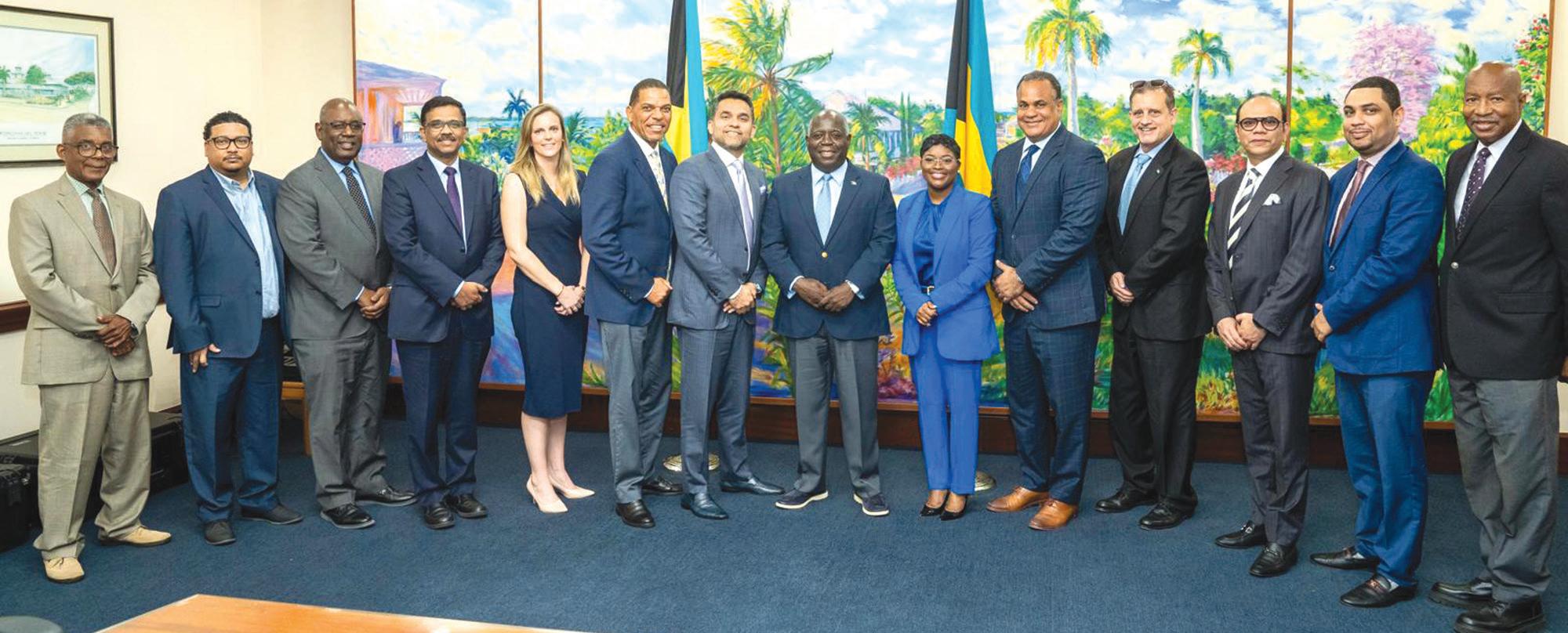
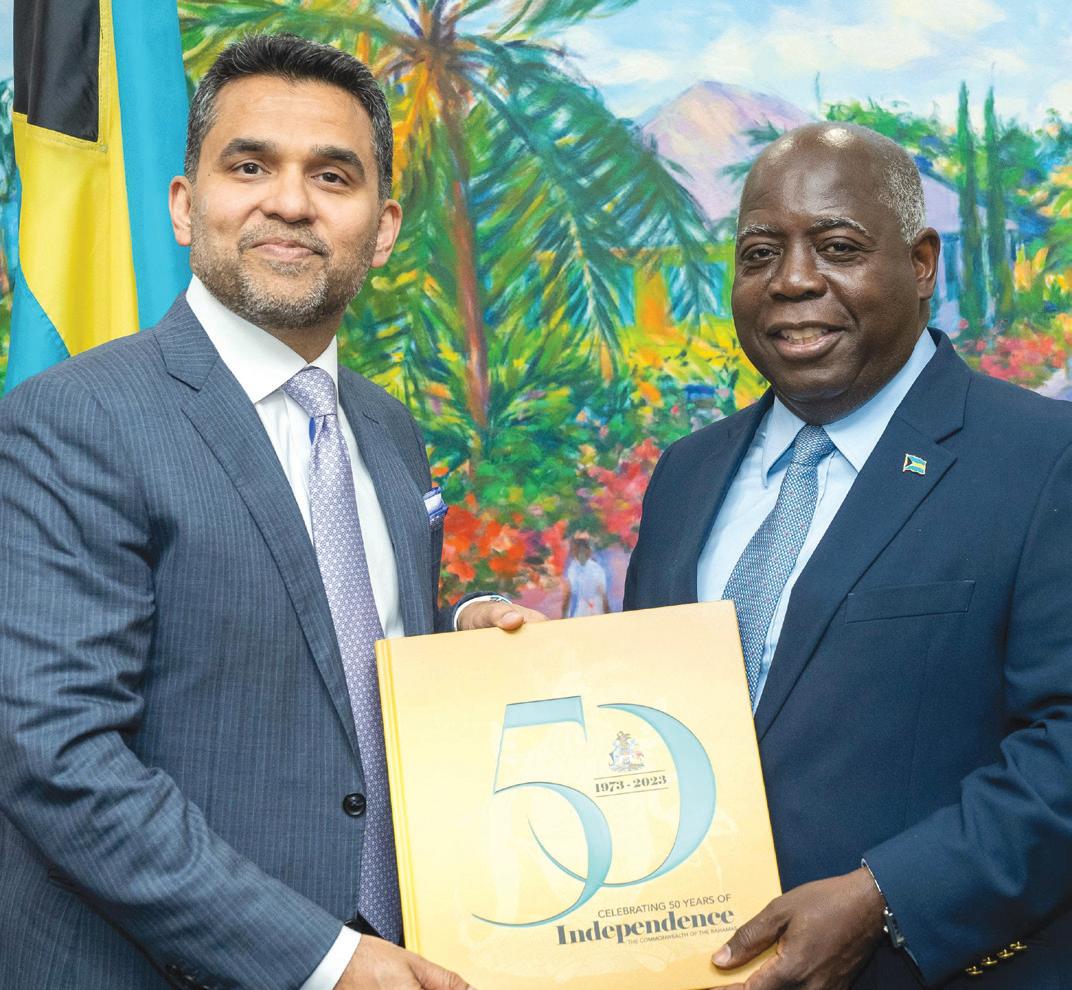
IN A STEP aimed at reinforcing the economic, cultural and diplomatic relations between the United Arab Emirates and Bahamas, Response Plus Medical (RPM) – the leading pre-hospital care and emergency medical services provider in Abu Dhabi, Dubai, Doha, Saudi Arabia, Egypt, Kuwait, Oman - recently signed a Memorandum of Understanding (MoU) with Bahamas Aviation, Climate and Severe Weather Network Ltd to assist the Ministers of Health and Transport put together a strategic plan that will bring Bahamian pre-hospital emergency response capabilities in Family Islands to a level that exceeds the mandatory requirements of Chicago Convention on International Civil Aviation (ICAO).
Burjeel Holdings’ courtesy call on Prime Minister Davis comes close on the heels of the Ministry of Foreign Affairs opening of The Bahamas’
embassy in Abu Dhabi in February.
The details of the initiative were discussed during a series of meetings in The Bahamas with Prime Minister Philip Davis and Minister of Energy and Transport JoBeth Coleby-Davis. The delegation from the UAE was led by Dr Shamsheer Vayalil, founder-chairman of Burjeel Holdings, and Dr Rohil Raghavan, CEO of Response Plus and holdings.
Dr Shamsheer, Dr Rohil and the visiting delegation also held meetings with Minister of Health Dr Michael Darville, Minister of Agriculture and Marine Affairs Jomo Campbell, Andrew Edwards, chairman of Public Hospitals Authority, Dr Aubynette P Rolle, managing director of Public Hospitals Authority (PHA), Dr Keva Thompson, deputy managing director PHA, and director of emergency medical services Dr Brennon as well as paying a courtesy call on Rt Hon Eileen Dupuch-Carron, OD, CMG LLb.



MONDAY, MARCH 24, 2025
By MALCOLM STRACHAN
DO you know if your MP broke the law this month?
I only ask because it is that time of year again –the time for filing financial declarations.
The deadline for parliamentarians to do so is March 1 – although year after year after year there is a casual disregard for the process of doing so.
This year we are told the process has been slowed down – with mould in the offices of the Public Disclosures Committee among the reasons why, according to the committee’s chairman, Bishop Victor Cooper.
He said four days after the deadline this month:
“We’ve had some setbacks.
We’ve got a situation where the office is unable to operate as it should. That slows down the process because we don’t have access to our facility.”
Imagine that. In an era when online services are being constantly touted, the legal process that parliamentarians have to go through gets derailed by a bit of mould.
Did the mould just suddenly appear? Did anyone notice it earlier? Did anyone think, you know what, we’re going to be busy soon doing the one job that if not carried out has legal consequences including prison sentences, maybe we should sort that out?
Each reader of this will have had their own involvements in the working world, I imagine, where in most cases there will have been discussion and consideration of back-up plans in case of problems executing
crucial duties. It sounds very much like no such plan B exists over at the disclosures committee.
Looking back at last year, Bishop Cooper told journalists that 90 percent of parliamentarians met the disclosure deadline. That means one in ten did not. Who was it? We were never told, but “several” senators and senior public officials failed to comply. No, let me rephrase that. They did not fail to comply. They broke the law.
What is the penalty for that? They could be fined up to $10,000 or be locked up in prison for two years.
The leader of the FNM, Michael Pintard, weighed in after the bishop’s statement, saying that the commission must be more forthcoming about who has followed the law, and who has broken it.
He pointed out – rightly – that the parliamentarians are not in the office when they are filling out the information and sending it in. He said: “Even if not all the details are there, the flexibility allows you to get in the core information and to update it. So really, we ought to be submitting that information.”
He fought shy of overly criticising Bishop Cooper, saying “I would not want to characterise him as copping out”, but added that “the commission has to be more forthcoming in providing us with the list”.
He claimed that some senators last year were not compliant but said the commission refused to release the names of non-compliant members of Parliament.
He said: “This isn’t an option – they have to

release the information.”
In response to Mr Pintard’s demand? Nothing. Silence.

This year, who disclosed?
Well, if we relied those whose job it is to shepherd disclosures, we would not know. However, some of those who make the declarations have spoken up as to whether they followed the law.
The FNM said all of its parliamentarians met this year’s deadline. The PLP did not say the same – however, The Tribune last week reported that the following said they filed their disclosures: Chester Cooper, Glenys Hanna Martin, Ginger Moxey, Wayne Munroe, Pia Glover-Rolle, JoBeth Coleby-Davis, Mario Bowleg, Myles Laroda, John Pinder III, Leon Lundy, Dr Michael Darville and Michael Halkitis. Leonardo Lightbourne admitted his was late, saying he had been on bed rest for a medical issue. He pledged to file his last week.
You will note a number of names absent from that list.
So how can it be made to happen that the law is followed and names are released of those who have not fulfilled their duties?
The Public Disclosure Act gives two people the power to act on delinquent filings. Only two. One is the prime minister. The other is the leader of the opposition. That would be Mr Pintard himself.
Either of those individuals can publish the information through a communication in the House of Assembly or cause for it to be laid in the Senate.
Either one – Prime Minister Philip Davis or Mr Pintard – can authorise the information to be presented to the attorney general or commissioner of police so those who failed to disclose could face that $10,000 fine
“...those who failed to disclose could face that $10,000 fine or that spell behind bars...”
or that spell behind bars.
So when will that be done?
I sometimes fear I sound like a broken record on this topic. Time and again, I have called for transparency on this most basic issue.
Back in 2022, I was talking about the same topic – even as the US State Department took issue with the same thing, saying it was an inadequate mechanism for casting a spotlight on politicians’ personal finances because the latest declarations then had neither been published nor independently vetted.
Note, we are not even talking about vetting here at this stage – just whether or not the filing has been done in the first place.
At the time, the US said: “For the 2021 deadline, the government gave extensions to all who were late to comply. The government did not publish a summary of the individual declarations, and there was no independent verification of the information submitted.”
It went on to talk about campaign finance – a slightly different topic but bear with me. The US said: “The campaign finance system remains largely unregulated with few safeguards against quid pro quo donations, creating a vulnerability to corruption and foreign influence.”
The crucial part is the latter portion of that sentence – a vulnerability to corruption and foreign influence.
The importance of the declarations process is simply to say, this is where we are. This is how it has changed. If a particular parliamentarian is suddenly enriched by a large amount, the declarations process
should reveal that. That can identify where that sudden income has come from, and help to prevent that very thing the US mentions, corruption.
If you are a constituent of an MP, someone you voted for, say, and between elections they are $10m better off while your pockets are as empty as they were when you placed your X, are you not entitled to ask whether they are working for you or working for themselves?
And let us just reiterate –this is the law. As I said back in 2022, you try the excuses the parliamentarians come up with over disclosures when you get stopped by the police if your driving licence has expired and see where that gets you. You’ll end up in court. So should those who disobey the law while a parliamentarian. You have no reason to trust someone who ignores the law while in power. None. If they ignore it now, they will ignore it again in future. And if they ignore that law, what other laws will they ignore?
The absolute minimum that this government should be doing – and that its predecessors should have been doing before it – is publishing the financial disclosures so we can all see who respects the law enough to follow it.
Instead, we have parliamentarians who regard this process as a nuisance. An inconvenience. As something that is somehow beneath them.
My closing thought when I wrote about this three years ago was this: “Let’s see exactly who did and did not meet the requirements of the law. And let’s take action against those who did not.” I see no reason to change that position.

By ANNA CHOI, Cornell University and Katelyn Mei, University of Washington
WHEN someone sees something that isn’t there, people often refer to the experience as a hallucination. Hallucinations occur when your sensory perception does not correspond to external stimuli.
Technologies that rely on artificial intelligence can have hallucinations, too. When an algorithmic system generates information that seems plausible but is actually inaccurate or misleading, computer scientists call it an AI hallucination. Researchers have found these behaviors in different types of AI systems, from chatbots such as ChatGPT to image generators such as Dall-E to autonomous vehicles. We are information scienceresearchers who have studied hallucinations in AI speech recognition systems. Wherever AI systems are used in daily life, their hallucinations can pose risks. Some may be minor – when a chatbot gives the wrong answer to a simple question, the user may end up ill-informed. But in

other cases, the stakes are much higher. From courtrooms where AI software is used to make sentencing decisions to health insurance companies that use algorithms to determine a patient’s eligibility for coverage, AI hallucinations can have life-altering
consequences. They can even be life-threatening: Autonomous vehicles use AI to detect obstacles, other vehicles and pedestrians.
Making it up
Hallucinations and
their effects depend on the type of AI system.
With large language models – the underlying technology of AI chatbots – hallucinations are pieces of information that sound convincing but are incorrect, made up or irrelevant. An AI chatbot might create a reference to a scientific article that doesn’t exist or provide a historical fact that is simply wrong, yet make it sound believable.
In a 2023 court case, for example, a New York attorney submitted a legal brief that he had written with the help of ChatGPT.
A discerning judge later noticed that the brief cited a case that ChatGPT had made up. This could lead to different outcomes in courtrooms if humans were not able to detect the hallucinated piece of information.
With AI tools that can recognise objects in images, hallucinations occur when the AI generates captions that are not faithful to the provided image. Imagine asking a system to list objects in an image that only includes a woman from the chest up talking on a phone and receiving a response that says a woman talking on
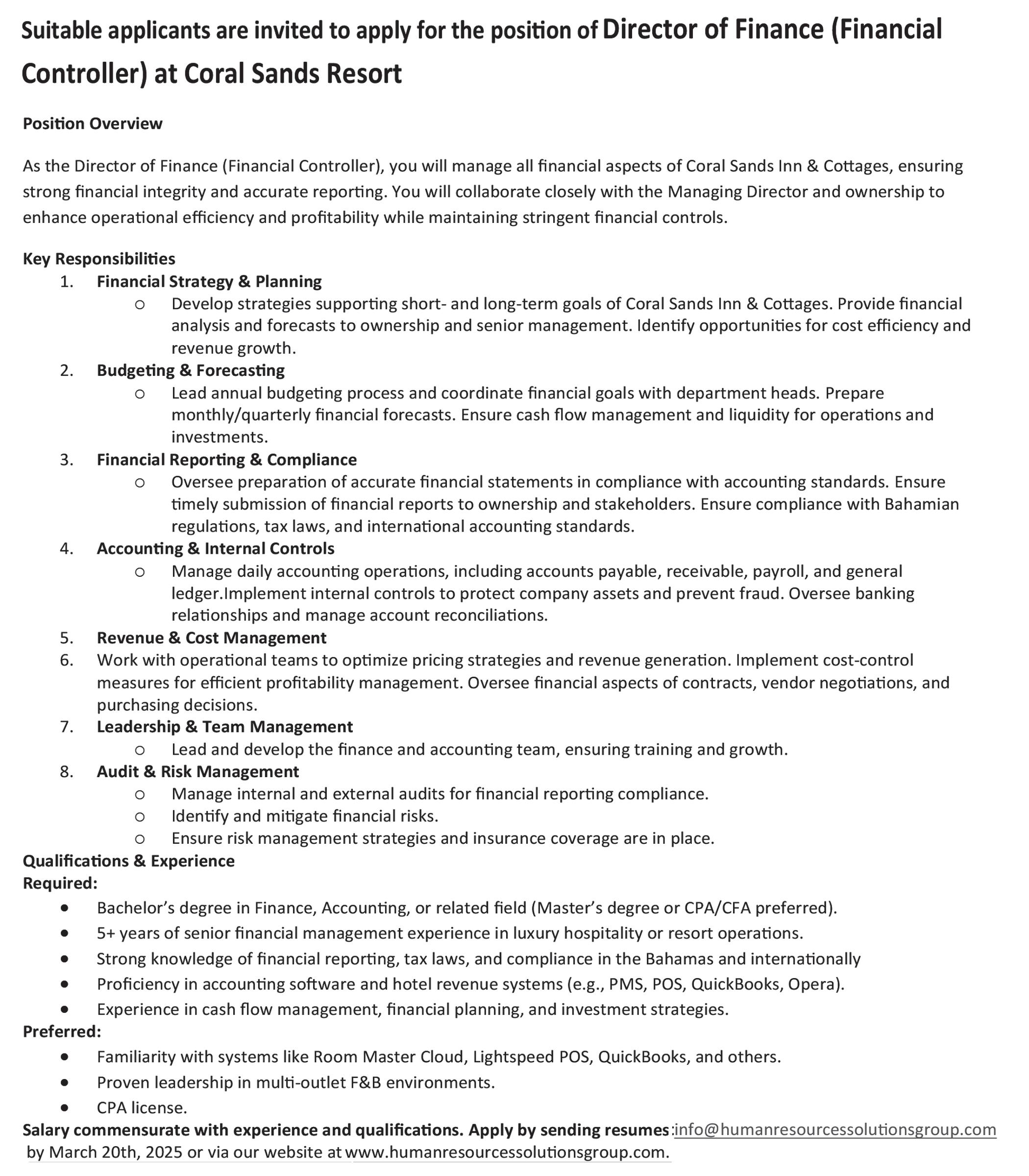
a phone while sitting on a bench. This inaccurate information could lead to different consequences in contexts where accuracy is critical.
What causes hallucinations
Engineers build AI systems by gathering massive amounts of data and feeding it into a computational system that detects patterns in the data. The system develops methods for responding to questions or performing tasks based on those patterns. Supply an AI system with 1,000 photos of different breeds of dogs, labeled accordingly, and the system will soon learn to detect the difference between a poodle and a golden retriever. But feed it a photo of a blueberry muffin and, as machine learning researchers have shown, it may tell you that the muffin is a chihuahua.
When a system doesn’t understand the question or the information that it is presented with, it may hallucinate. Hallucinations often occur when the model fills in gaps based on similar contexts from its training data, or when it is built using biased or incomplete training data. This leads to incorrect guesses, as in the case of the mislabeled blueberry muffin.
It’s important to distinguish between AI hallucinations and intentionally creative AI outputs. When an AI system is asked to be creative – like when writing a story or generating artistic images – its novel outputs are expected and desired. Hallucinations, on the other hand, occur when an AI system is asked to provide factual information or perform specific tasks but instead generates incorrect or misleading content while presenting it as accurate.
The key difference lies in the context and purpose: Creativity is appropriate for artistic tasks, while hallucinations are problematic when accuracy and reliability are required.
To address these issues, companies have suggested
using high-quality training data and limiting AI responses to follow certain guidelines. Nevertheless, these issues may persist in popular AI tools.
The impact of an output such as calling a blueberry muffin a chihuahua may seem trivial, but consider the different kinds of technologies that use image recognition systems: An autonomous vehicle that fails to identify objects could lead to a fatal traffic accident. An autonomous military drone that misidentifies a target could put civilians’ lives in danger. For AI tools that provide automatic speech recognition, hallucinations are AI transcriptions that include words or phrases that were never actually spoken. This is more likely to occur in noisy environments, where an AI system may end up adding new or irrelevant words in an attempt to decipher background noise such as a passing truck or a crying infant.
As these systems become more regularly integrated into health care, social service and legal settings, hallucinations in automatic speech recognition could lead to inaccurate clinical or legal outcomes that harm patients, criminal defendants or families in need of social support.
Regardless of AI companies’ efforts to mitigate hallucinations, users should stay vigilant and question AI outputs, especially when they are used in contexts that require precision and accuracy. Doublechecking AI-generated information with trusted sources, consulting experts when necessary, and recognising the limitations of these tools are essential steps for minimising their risks.

FOR decades, many Caribbean nations have grappled with dependence on a small number of powerful countries to supply vital imports, fill hotel rooms with tourists, and grant visas that open doors to opportunity.
These dependencies, while convenient in the short term, have farreaching implications that undermine the sovereignty, economic resilience, and social cohesion of the region.
The result is a precarious position in which external forces can, at will, stop issuing visas or curtail the flow of remittances, tourism revenues, and imports, thereby threatening local economies and well-being.
Yet this vulnerability is not imposed solely by big countries outside the region; it is fuelled by our own choices and the persistence of historically ingrained attitudes of dependence.
If the Caribbean is to protect its sovereignty and genuinely chart its own path, urgent action is needed on multiple fronts: strengthening public institutions, embracing import substitution where feasible, boosting food security, and forging deeper regional integration that goes beyond rhetoric.
Most Caribbean countries have traditionally counted on one or two main trading partners to supply the lion’s share of basic goods - food, fuel, and other consumer items. Similarly, the tourism industry often hinges on a narrow band of visitors from North America and, in some instances, Europe. When these markets thrive, substantial income flows into the region. However, when economic downturns or political decisions arise in these external sources, local economies can be brought to a standstill overnight.
Adding to this is the strong appetite for visas among Caribbean populations. Many citizens in the region aspire to travel or migrate to a handful of countries; some even sacrifice to ensure that their children are born in these states so it might help secure residence.
There is no denying that social and economic factors underpin this reality. Yet it inadvertently strengthens these same countries’ leverage over Caribbean states. The spectre of visa restrictions or migration clampdowns worries populations who, by this preference, place their personal - and by extension, economicaspirations in the hands of foreign government policies.
We should note that it is not a power these foreign governments necessarily seek; it is a power that Caribbean peoples grant by the importance they place on visas and migration.
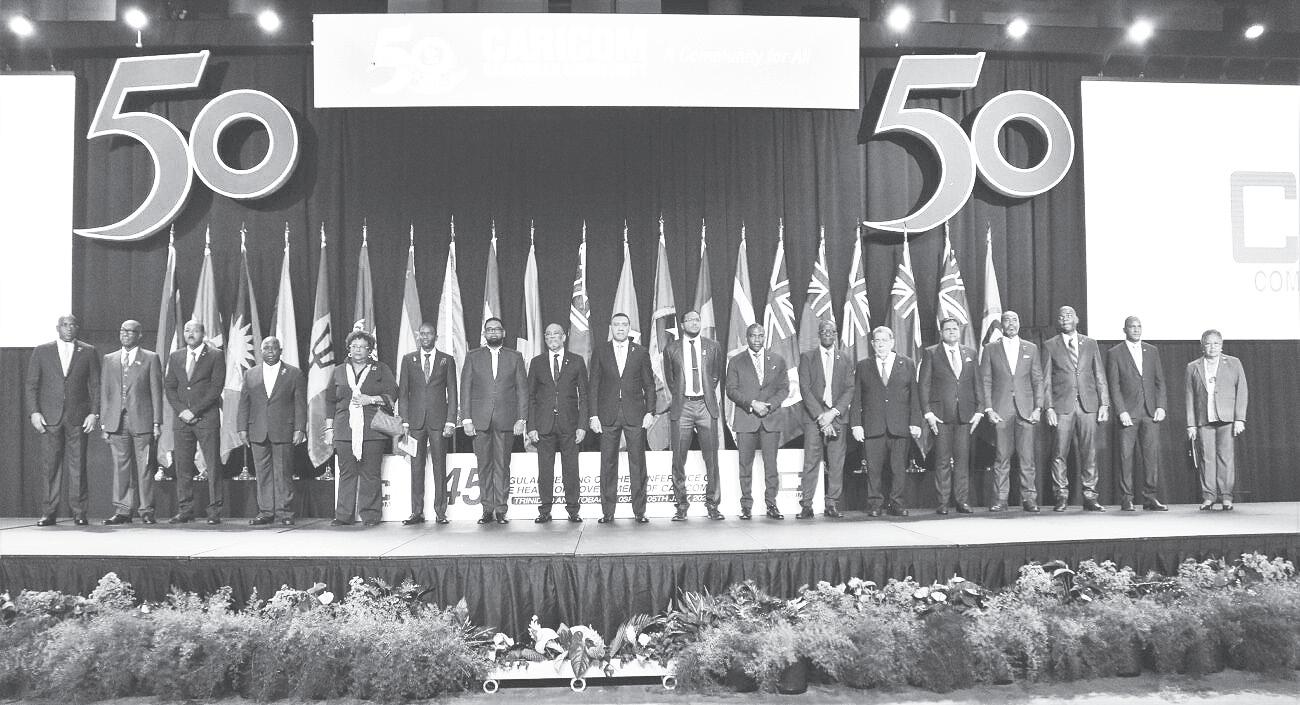
By SIR RONALD SANDERS
After more than six decades of political independence, Caribbean nations often find their sovereignty limited by those foreign powers on which they still depend. The freedom to determine priorities - be they in food supply, manufacturing policy, or migrant labour regulationscan be undercut by reliance on international tourism, shipping lanes, and external finances.
Additionally, continuing distrust of political governance in the region - often linked to perceptions of corruption, unfair treatment, or non-transparent policies - has eroded public faith. Ironically, many Caribbean citizens remain more inclined to trust residual colonial-era institutions (such as the British Privy Council) or to seek stability abroad - where they risk facing discrimination and xenophobia - rather than channelling their energies toward homegrown solutions. Collectively, this mindset locks the region into a cycle of dependence and vulnerability.
Breaking these chains of dependency starts with ensuring that public institutions are capable, efficient, and transparent.
The region’s public services must curb bureaucratic waste, channel resources more effectively, and provide support for local industries that can scale up and meet domestic demand. This includes
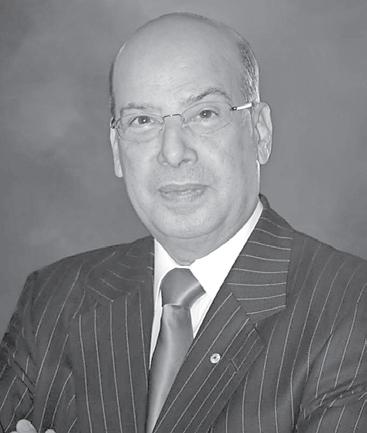
building food security, encouraging import substitution, strengthening public services and good governance, and diversifying trade and tourism markets.
CARICOM: FROM TALK TO ACT ION
Regional unity, symbolised by the Caribbean Community (CARICOM), has been extolled for decades as the key to addressing persistent vulnerabilities. Indeed, food security, manufacturing, sea and air transportation, and coordinated trade policies are perennial topics on CARICOM’s agenda. Yet the advances have been minimal compared to the region’s ever-growing external dependencies. Squabbles between member states, inertia in implementing collective decisions, and the prevalence of insular nationalism undermine the region’s potential to pool resources and collaborate on large-scale initiatives.
For the region’s sovereignty to be meaningful, CARICOM and its member governments must move decisively from consideration to implementation. Every additional “baby step” is overshadowed by the giant leaps of ongoing external reliance.
Despite noteworthy achievements by the University of the West Indies and other institutions, much remains to be done to instil self-belief, civic responsibility, and a willingness to innovate at every level of Caribbean society. Education must go beyond imparting academic knowledge to embed values of entrepreneurship,

resilience, and collective responsibility. It should also build a sense of pride in being Caribbean and an appreciation for our shared cultural heritage.
Caribbean nations must reimagine themselves not just as small states tethered to global powers, but as part of a shared international civilization with a storied history and a boundless future.
Overcoming tribalism and nationalism to build a strong regional community—and a genuine commitment to it - is not just a political project; it is also a cultural, psychological, and generational one.
While there are physical and geographical factors that limit the region, the current vulnerabilities and dependencies that define much of Caribbean economic and social life are neither permanent nor insurmountable. They can be mitigated - if not eliminated - through deliberate, coordinated, and purposeful action. Governments must enact clear policies to strengthen public institutions and boost local production. Businesses should expand their supplier networks and invest in local production, not just for profit but for long-term stability. CARICOM countries must realise the power and
promise of unity – regional economic integration offers a resilient path forward. They must make a reality of all its potential. True independence cannot thrive on the scaffolding of external reliance. If the people and governments of the region want to exercise full autonomy of their own affairs, they must collectively work to break free from the vulnerabilities that threaten to define us. The alternative is to grin and bear it.
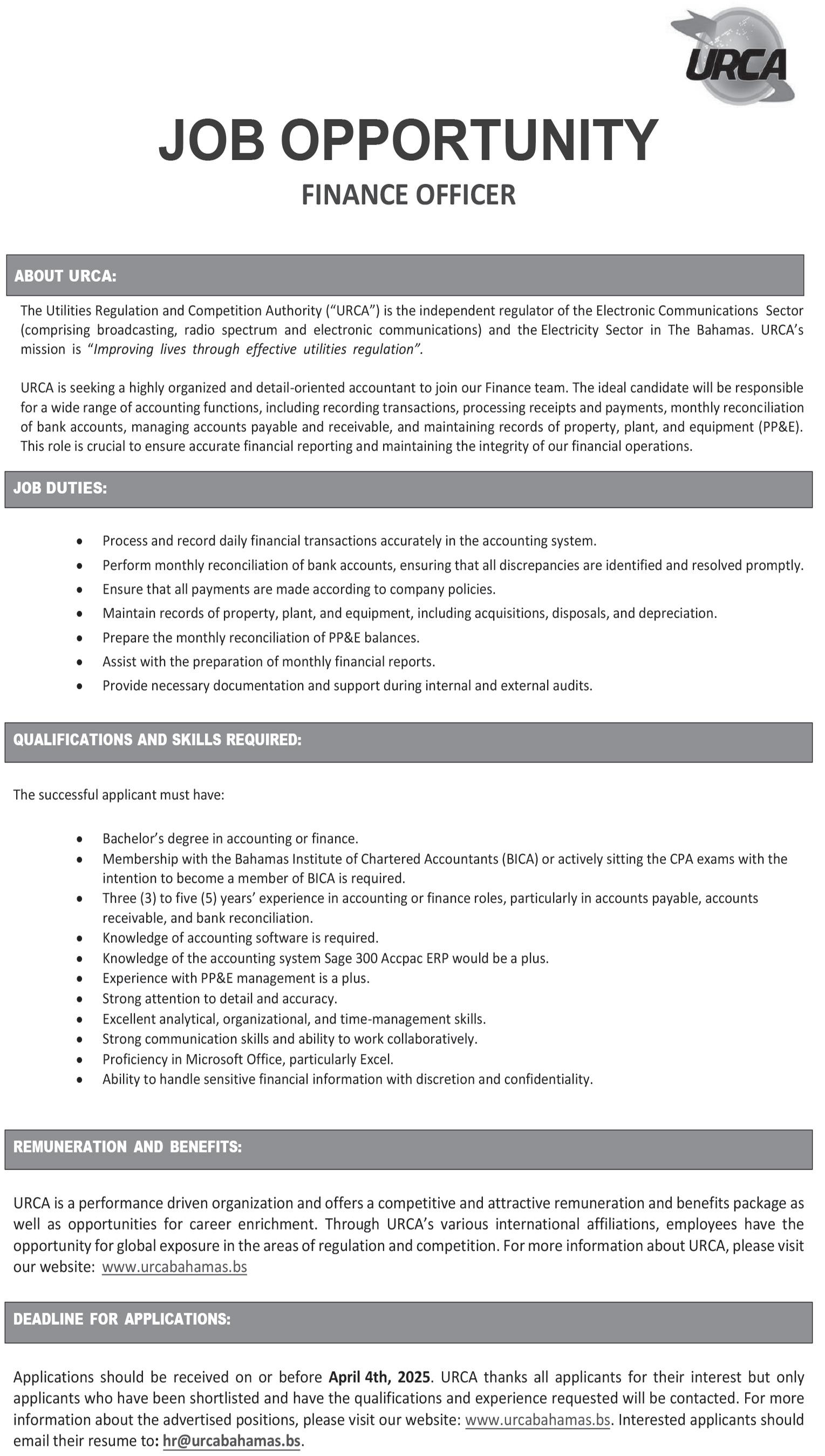
By RASHAD ROLLE Tribune Staff Reporter rrolle@tribunemedia.net
THE Court of Appeal has upheld the convictions of two men on drug charges, rejecting claims that their trials were unfair or unsupported by evidence and reinforcing the legal weight of circumstantial proof and statutory presumptions in drug prosecutions.
In a ruling released last week, the court found that both Wenzel Stuart and Luthianos McPhee had failed to rebut the legal presumption of possession after significant quantities of cocaine were discovered in locations closely linked to them. Stuart was connected to a stash of drugs found in a
residence, while McPhee was the pilot of a plane used to transport the narcotics. The court said the trial magistrate had sufficient evidence to conclude that Stuart was the occupier of the home where the drugs were found. Personal items bearing his name — including expired passports, a savings book update form, and an affidavit of birth for his daughter — were recovered from the property. Under Section 29(6) of the Bahamas’ Dangerous Drugs Act (DDA), such evidence shifts the burden to the accused to prove that drugs found in a place they own or occupy were there without their knowledge or consent. Stuart’s response
— including telling police “no comment” and offering no credible explanation for the presence of the documents — was deemed insufficient to discharge that burden. The magistrate had also found inconsistencies in Stuart’s alibi, including conflicting accounts of a fishing trip and vague testimony from his girlfriend. One of his own witnesses corroborated police testimony that he lived at the residence, undermining his defence.
McPhee, the second appellant, was convicted after a video showed him actively offloading four heavy bags — later determined to contain more than 200 pounds of cocaine — from his small aircraft during a landing
on Moore’s Island. He was the sole pilot on the flight and had only one passenger, whose name he never obtained. Prosecutors argued, and the magistrate agreed, that McPhee’s failure to ask about the nature or weight of the luggage — combined with his evasive actions after the drop-off — supported the conclusion that he was knowingly participating in a drug trafficking operation.
The magistrate described the landing scene as “chaotic” and akin to a “drug drop”. After the drop-off, McPhee flew to Treasure Cay, where police encountered him. Rather than stopping, he accelerated toward the officers, forcing them to fire warning shots. His later claim that he flew from Mayaguana,

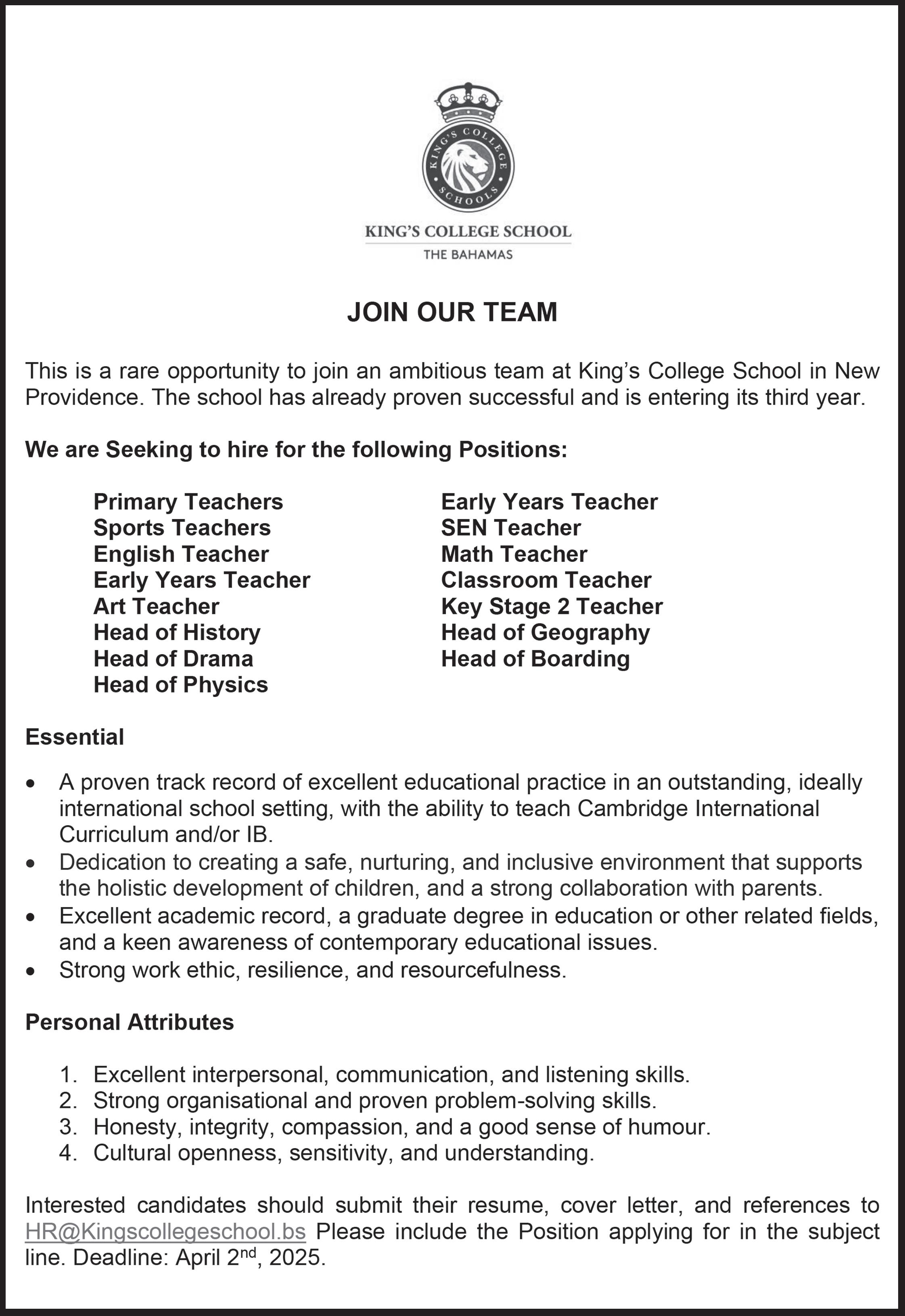
not Moore’s Island, was disproven and taken as an attempt to mislead authorities.
In affirming the conviction, the court cited the principle from DPP v Brooks that constructive possession — where an accused has control over an item even if not physically holding it — can be established through inference. The court found the evidence against McPhee, including his conduct and false statements, sufficient to conclude that he knew he was transporting drugs.
Both men had argued on appeal that the magistrate erred in assessing the facts and that the convictions were unsafe. McPhee additionally claimed that the magistrate improperly took on the role
of advocate by asking whether he was aware of aviation regulations about flying after sunset.
The appellate court rejected that argument, saying the question was not improper and that no prejudice to the defence had been shown.
McPhee also challenged his sentence as excessive and argued that the magistrate wrongly inferred criminal intent from the $3,000 payment his passenger made for the charter. But the court said those issues were reasonably considered and that no error of law had been demonstrated.
“The findings of fact were reasonably made, and there is no basis for our interference,” the judges concluded.

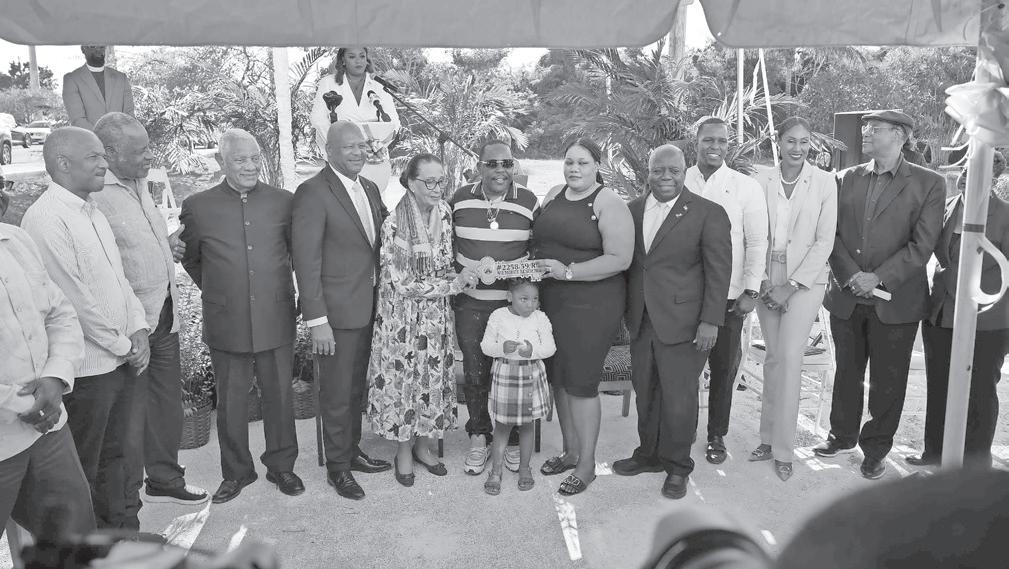
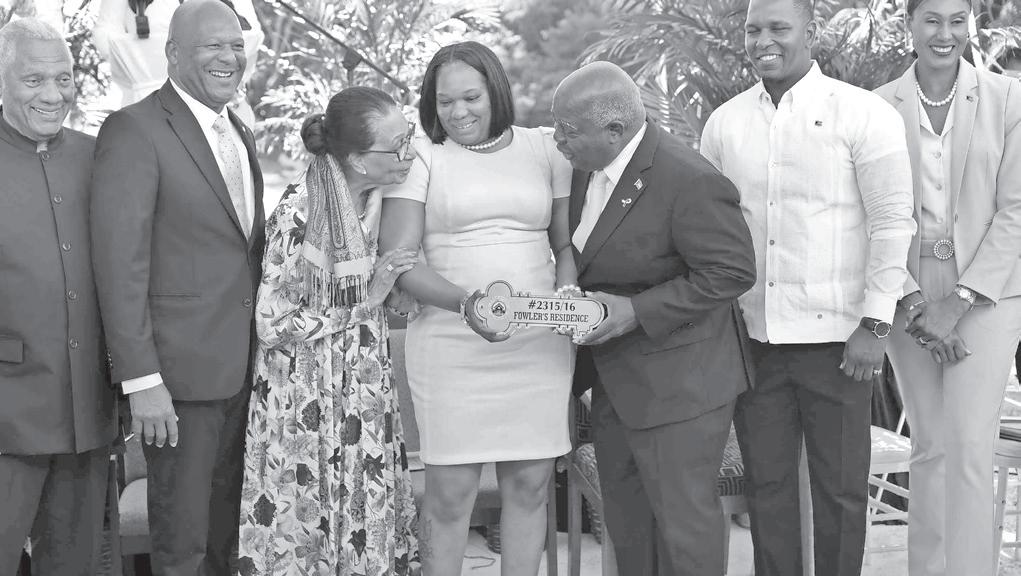
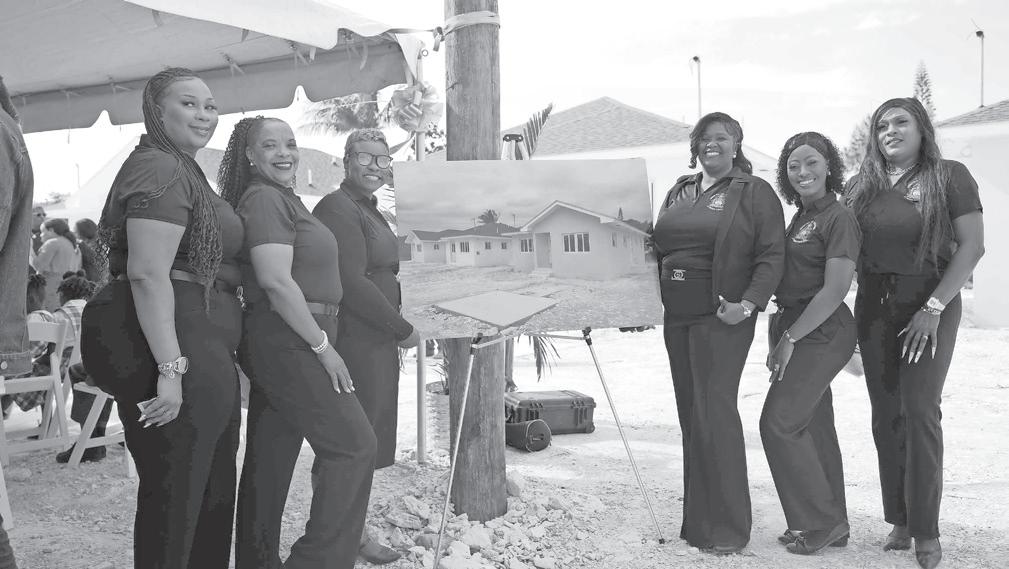
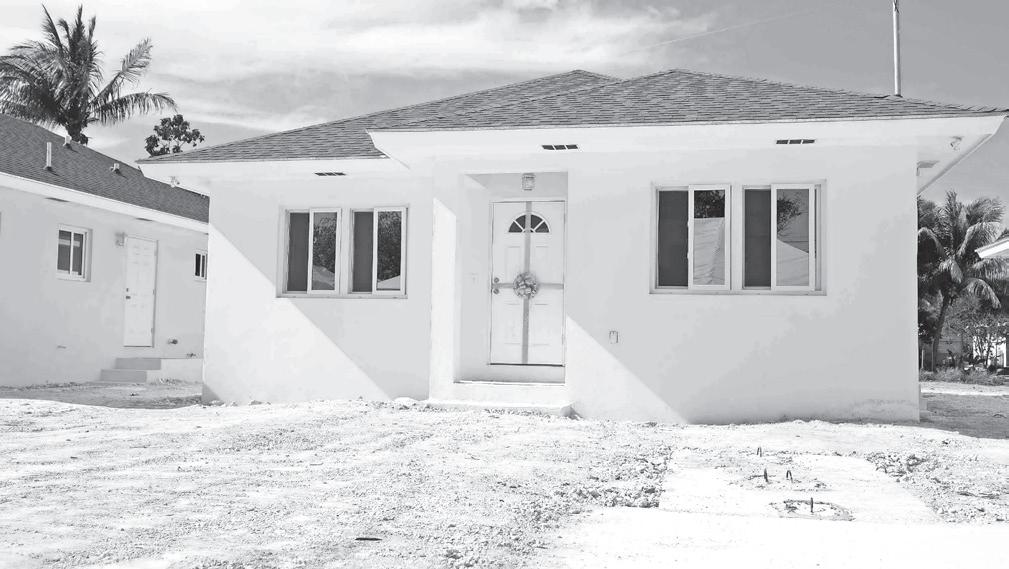
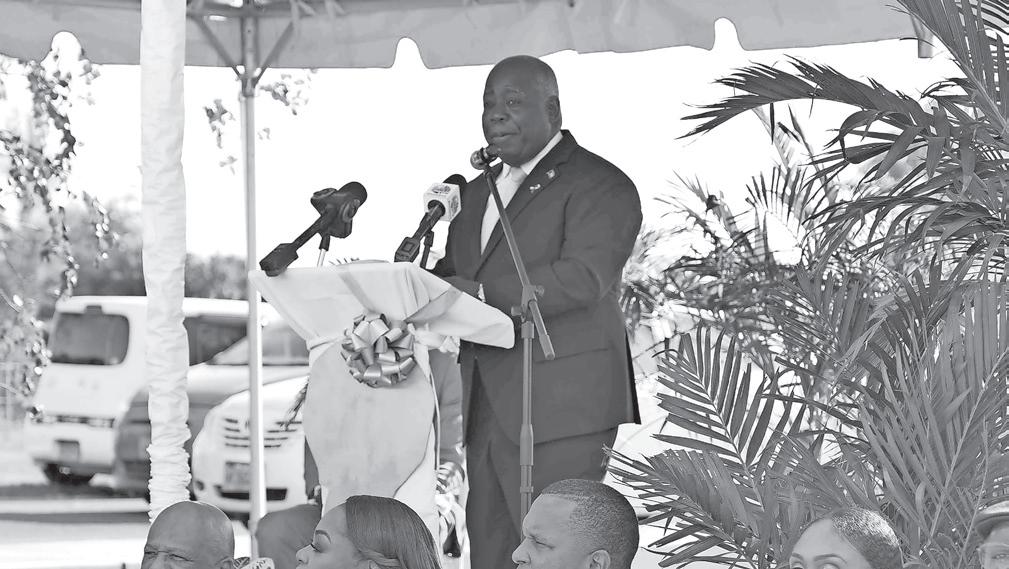
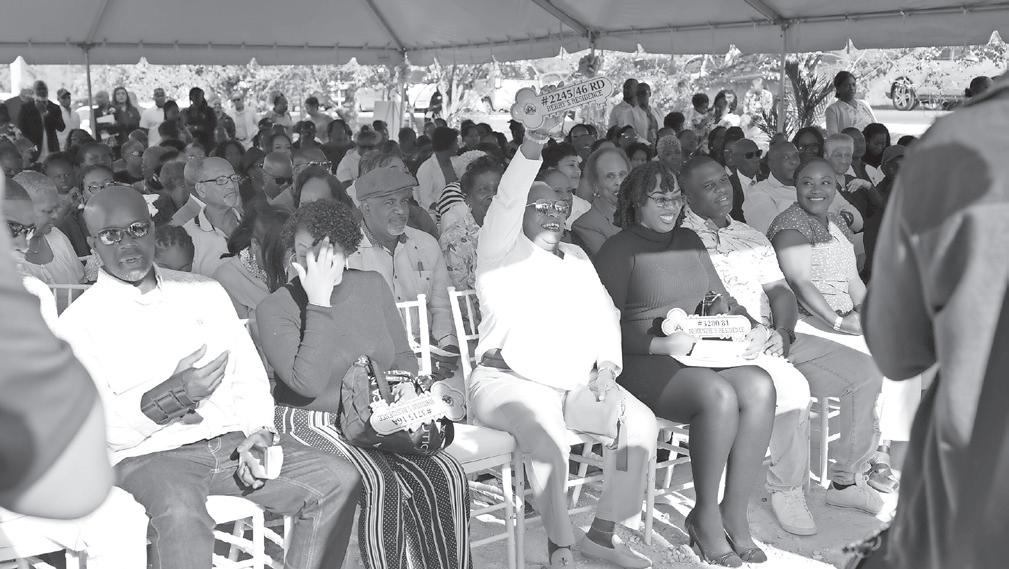
By PAVEL BAILEY Tribune Staff Reporter
pbailey@tribunemedia.net
A WOMAN was granted bail after being accused of assaulting another woman with a baseball bat earlier this month.
Chief Magistrate
Roberto Reckley arraigned Georgette Reid, 43, on a charge of assault with a dangerous instrument on Friday.
Prosecutors allege she assaulted Patricia Lyew with a bat at around 12.30am on March 6. Reid pleaded not guilty.
Her bail was set at $3,500 with one or two sureties. She must sign in at the Carmichael Road Police Station every Monday and Friday by 6pm. Her trial is scheduled to begin on May 13. Inspector Deon Barr served as the prosecutor.
By PAVEL BAILEY Tribune Staff Reporter pbailey@tribunemedia.net
A HARBOUR Island man was fined on Friday for breaching his bail conditions while awaiting trial over the alleged rape of two female tourists in 2018.
Senior Magistrate Anishka Isaacs arraigned Julian Stewart, 33, on four counts of failing to comply with bail requirements.
Stewart had been granted bail after being charged with rape and unlawful sexual intercourse. He and an accomplice allegedly raped a 17-year-old and a 15-year-old on a Harbour Island beach sometime between June 27 and 28, 2018.
While on release, Stewart failed to report to his local police station on four occasions between December 9 2024 and March 18.
He pleaded guilty on Thursday and accepted the facts presented against him.
After being remanded overnight, he was ordered on Friday to pay a $4,900 fine or face four months in prison. A portion of the fine must be paid before his release, with the balance to be settled later.
Assistant Superintendent of Police K Bould prosecuted the case.

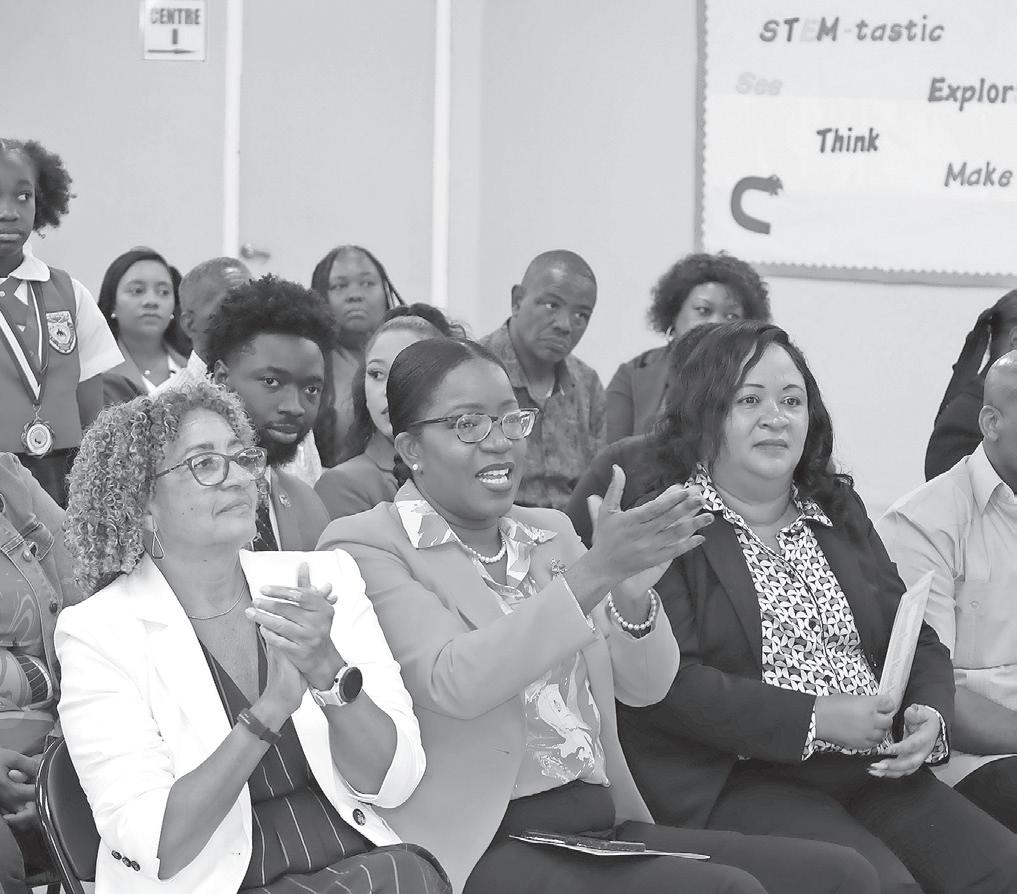
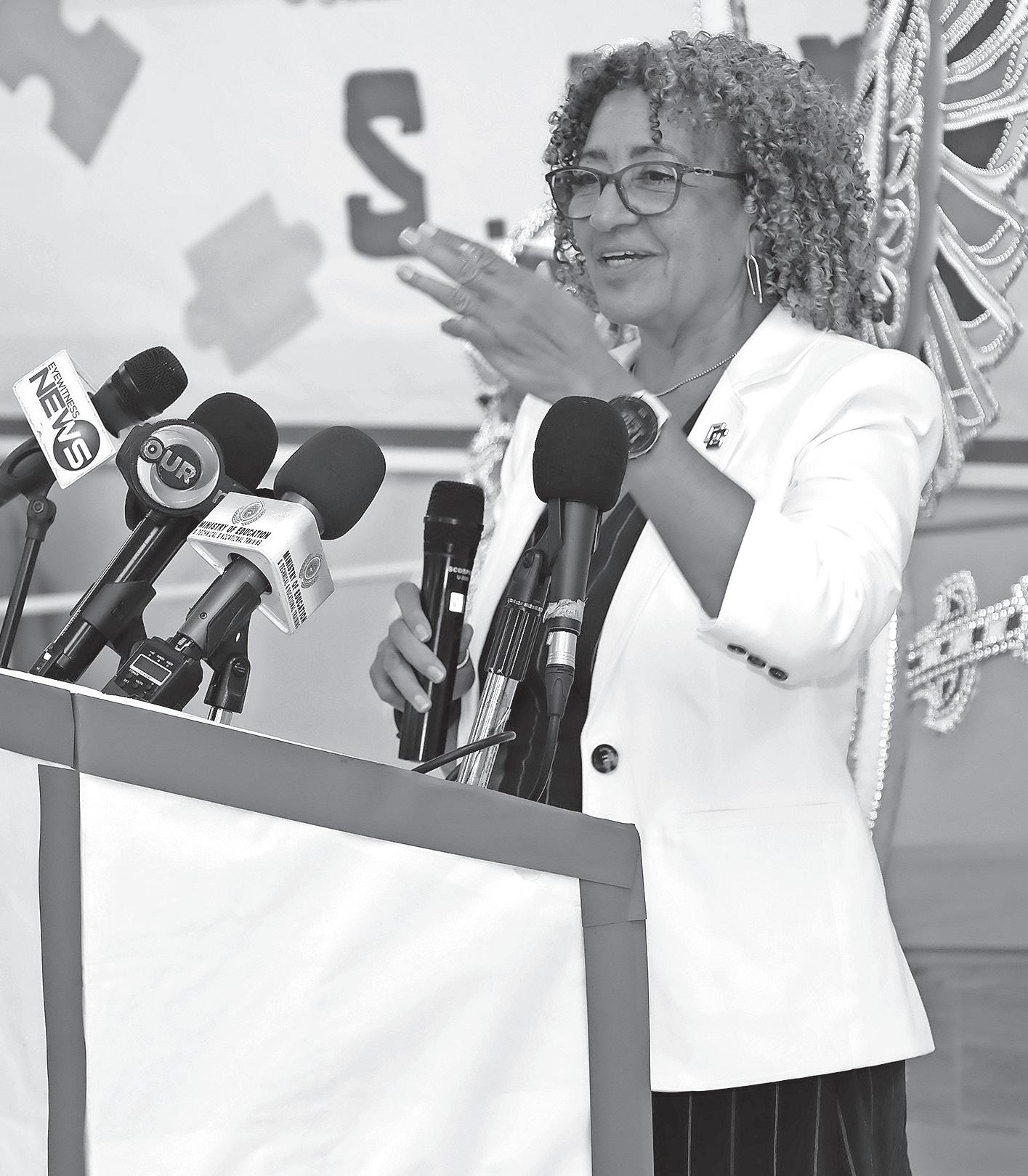

By PAVEL BAILEY Tribune Staff Reporter pbailey@tribunemedia.net
A 50-YEAR-OLD man was remanded to prison on Friday after being accused of fatally stabbing another man outside a business on East Street South earlier this month.
THE MINISTRY of Education and Technical and Vocational Training Junior Sailing Programme in conjunction with the Ministry of Foreign Affairs and the Ministry of Works and Family Island Affairs held a meet & greet with CARICOM assistant secretary general/ foreign and community relations Elizabeth Solomon at Uriah McPhee Primary School, on Friday.
Photos: Patrick Hanna/BIS
Chief Magistrate Roberto Reckley arraigned Peter Johnson on a charge of murder. Prosecutors allege he fatally stabbed Berkley Kerr sometime before 2am on March 13.
Police reportedly found the victim lying on a stairway with multiple stab wounds. He was pronounced dead at the scene by emergency medical services. Johnson was not required to enter a plea.
The matter will proceed to the Supreme Court through a voluntary bill of indictment (VBI). He was informed of his right to apply for bail through the Supreme Court. He will remain at the Bahamas Department of Correctional Services until his VBI is potentially served on June 19. Inspector Deon Barr served as the prosecutor.
By PAVEL BAILEY Tribune Staff Reporter pbailey@tribunemedia.net
A 16-YEAR-OLD boy admitted to having a loaded firearm and running from police on Kemp Road earlier this month.
Senior Magistrate Algernon Allen Jr arraigned the teen, whose name is being withheld as he is a minor, on charges of
possession of an unlicensed firearm and ammunition on Friday.
The boy’s guardian was present for the arraignment.
The teen reportedly fled on foot after spotting police on March 13. During the chase, he tried to discard a black Taurus PT111 G2 9mm pistol loaded with 24 rounds of ammunition.
Officers recovered both the weapon and the suspect.
He pleaded guilty to the offence.
The court granted him $9,000 bail and placed him under a 24-hour residential curfew. He is expected back in court to present his probation report on May 22. Sergeant 3004 Forbes served as the prosecutor.
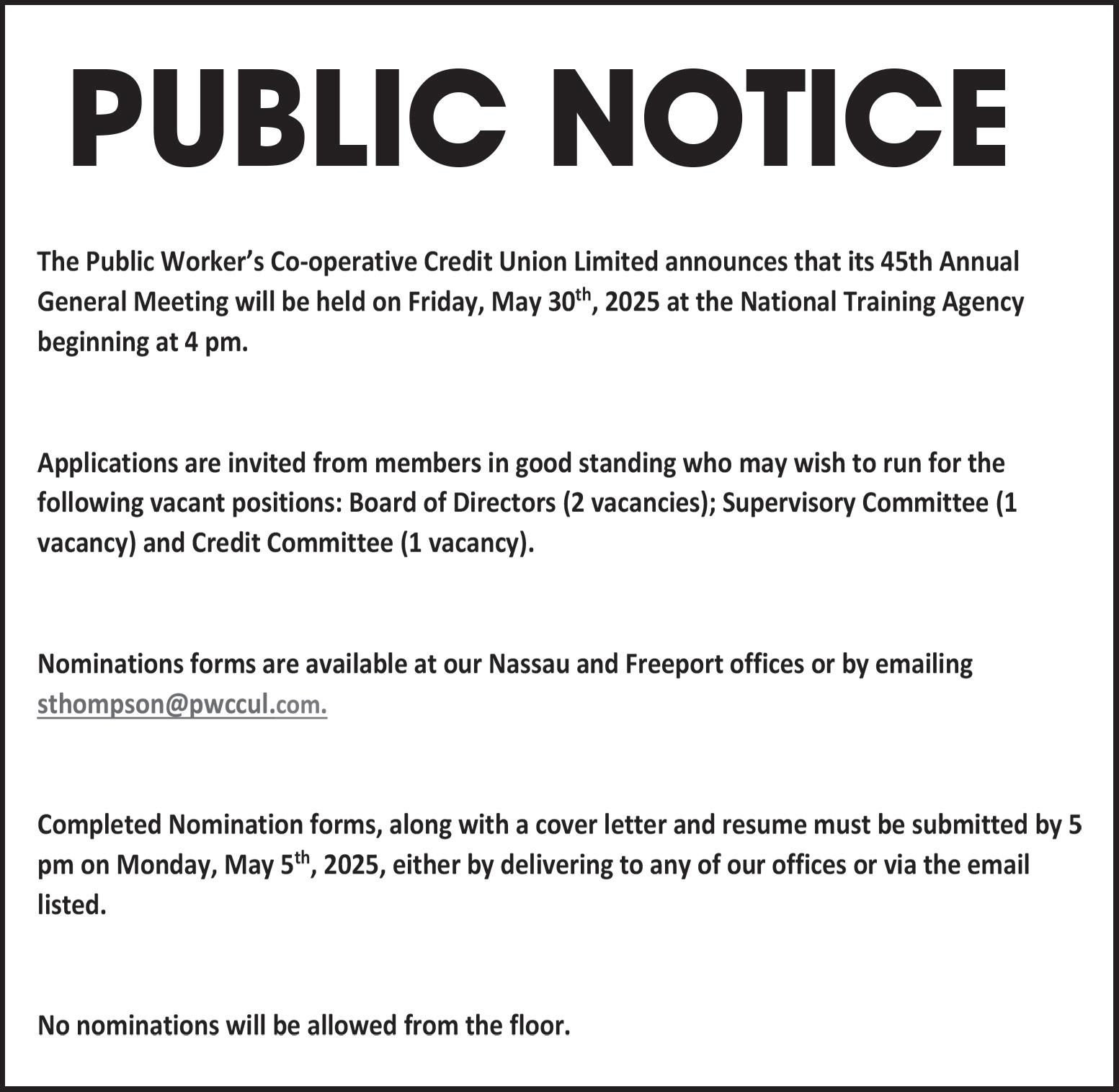
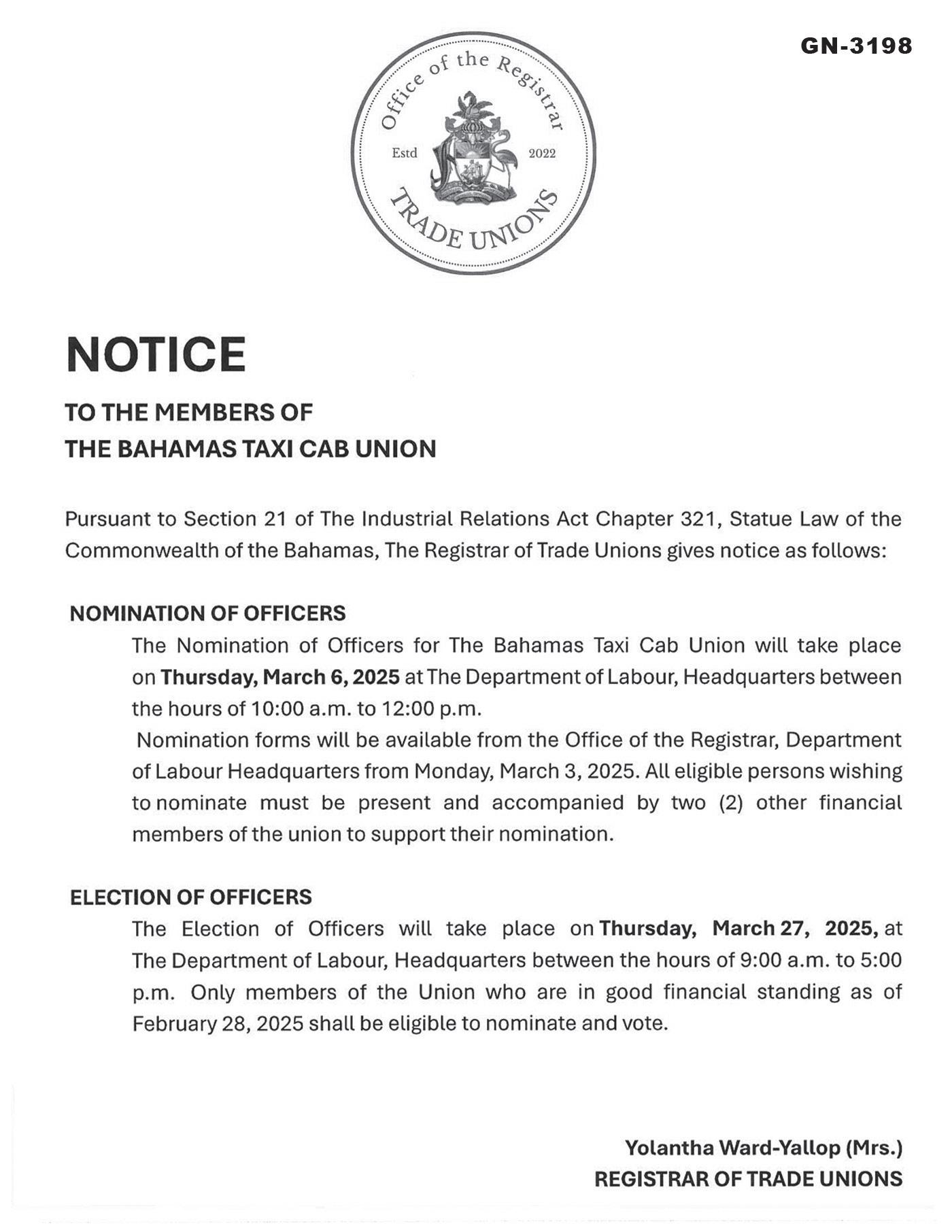


MIAMI Associated Press
THE Department of Homeland Security said Friday that it will revoke legal protections for hundreds of thousands of Cubans, Haitians, Nicaraguans and Venezuelans, setting them up for potential deportation in about a month.
The order applies to about 532,000 people from the four countries who came to the United States since October 2022. They arrived with financial sponsors and were given two-year permits to live and work in the US
Homeland Security Secretary Kristi Noem said they will lose their legal status on April 24, or 30 days after the publication of the notice in the Federal Register.
The new policy impacts people who are already in the US and who came under the humanitarian parole program. It follows an earlier Trump administration decision to end what it called the “broad abuse” of the humanitarian parole, a longstanding legal tool presidents have used to allow people from countries where there’s war or political instability to enter and temporarily live in the US.
During his campaign President Donald Trump promised to deport millions of people who are in the US illegally, and as president he has been also ending legal pathways for immigrants to come to the US and to stay.
DHS said parolees without a lawful basis to stay in the US “must depart” before their parole termination date.
“Parole is inherently temporary, and parole alone is not an underlying basis for obtaining any immigration status,” DHS said.
Before the new order, the beneficiaries of the program could stay in the US until their parole expires, although the administration had stopped processing their applications for asylum,
visas and other requests that might allow them to remain longer.
The administration decision has already been challenged in federal courts.
A group of American citizens and immigrants sued the Trump administration for ending humanitarian parole and are seeking to reinstate the programs for the four nationalities.
Lawyers and activists raised their voices to denounce the government’s decision.
Friday’s action is “going to cause needless chaos and heartbreak for families and communities across the country,” said Karen Tumlin, founder and director of Justice Action Center, one of the organizations that filed the lawsuit at the end of February. She called it “reckless, cruel and counterproductive.”
The Biden administration allowed up to 30,000 people a month from the four countries to come to the United States for two years with eligibility to work. It persuaded Mexico to take back the same number from those countries because the US could deport few, if any, to their homes.
Cuba generally accepted about one deportation flight a month, while Venezuela and Nicaragua refused to take any. All three are US adversaries.
Haiti accepted many deportation flights, especially after a surge of migrants from the Caribbean country in the small border town of Del Rio, Texas, in 2021. But Haiti has been in constant turmoil, hampering US efforts. Since late 2022, more than half a million people have come to the US under the policy, also known as CHNV. It was a part of the Biden administration’s approach to encourage people to come through new legal channels while cracking down on those who crossed the border illegally.
ISTANBUL Associated Press
PROSECUTORS early Sunday requested that detained Istanbul Mayor Ekrem Imamoglu, the top challenger to President Recep Tayyip Erdogan, be formally arrested over allegations of corruption and terror links.
A court is now set to decide whether the popular opposition figure will be charged and jailed pending a trial. The arrest this week of Imamoglu has intensified political tensions and sparked widespread protests across Turkey, with demonstrators rallying in multiple cities to voice their opposition.
Many view his arrest as a politically driven attempt to remove Imamoglu from the next presidential race, currently scheduled for 2028. Government officials reject the accusation and say Turkey’s courts are independent.
Police questioned Imamoglu for around five hours on Saturday as part of an investigation into allegations of aiding the outlawed Kurdistan Workers’ Party, or PKK, the Cumhuriyet newspaper reported. A day earlier he was questioned for four hours over the corruption accusations. The mayor rejected all charges during both interrogations.
He was later transferred to a courthouse for questioning by prosecutors along with some 90 other people who were also detained with him.
Authorities barred access to the courthouse using barricades on local roads and closing nearby metro stations. Hundreds of police officers and over a dozen water cannon trucks were deployed. Still, hundreds gathered in front of the building shouting: “Rights, law, justice!”
Others gathered outside the Istanbul city hall or took to the streets to denounce the mayor’s resignation for a fourth night of nationwide protests, in the largest wave of street demonstrations in Turkey in more than a decade. The demonstrations were largely peaceful but a group of protesters, trying to break through barricades to reach Istanbul’s main square, threw flares, stones and other objects at police, which responded with pepper spray. Some demonstrators said rubber bullets were fired. Police used water cannons and tear gas to scatter demonstrators in Ankara.
Interior Minister Ali Yerlikaya said 323 people were detained following protests Saturday night. Earlier, he said: “There will be no tolerance for those who seek to violate societal order, threaten the people’s peace and security, and pursue chaos and provocation.”
Imamoglu was detained on Wednesday following a dawn raid on his residence over allegations of financial crimes and links to Kurdish militants. Dozens of other prominent figures, including two district mayors, were also detained.
The Istanbul governor’s office announced it was expanding a ban on demonstrations until March 26 and imposed restrictions on the entry and exit of vehicles deemed to be transporting people “likely to participate in unlawful activities.” Erdogan on Saturday accused the leadership of the opposition CHP of turning the party “into an apparatus to absolve a handful of municipal robbers who have become blinded by money.” He also accused it of “doing everything to disturb the public peace, to polarize the nation.”

